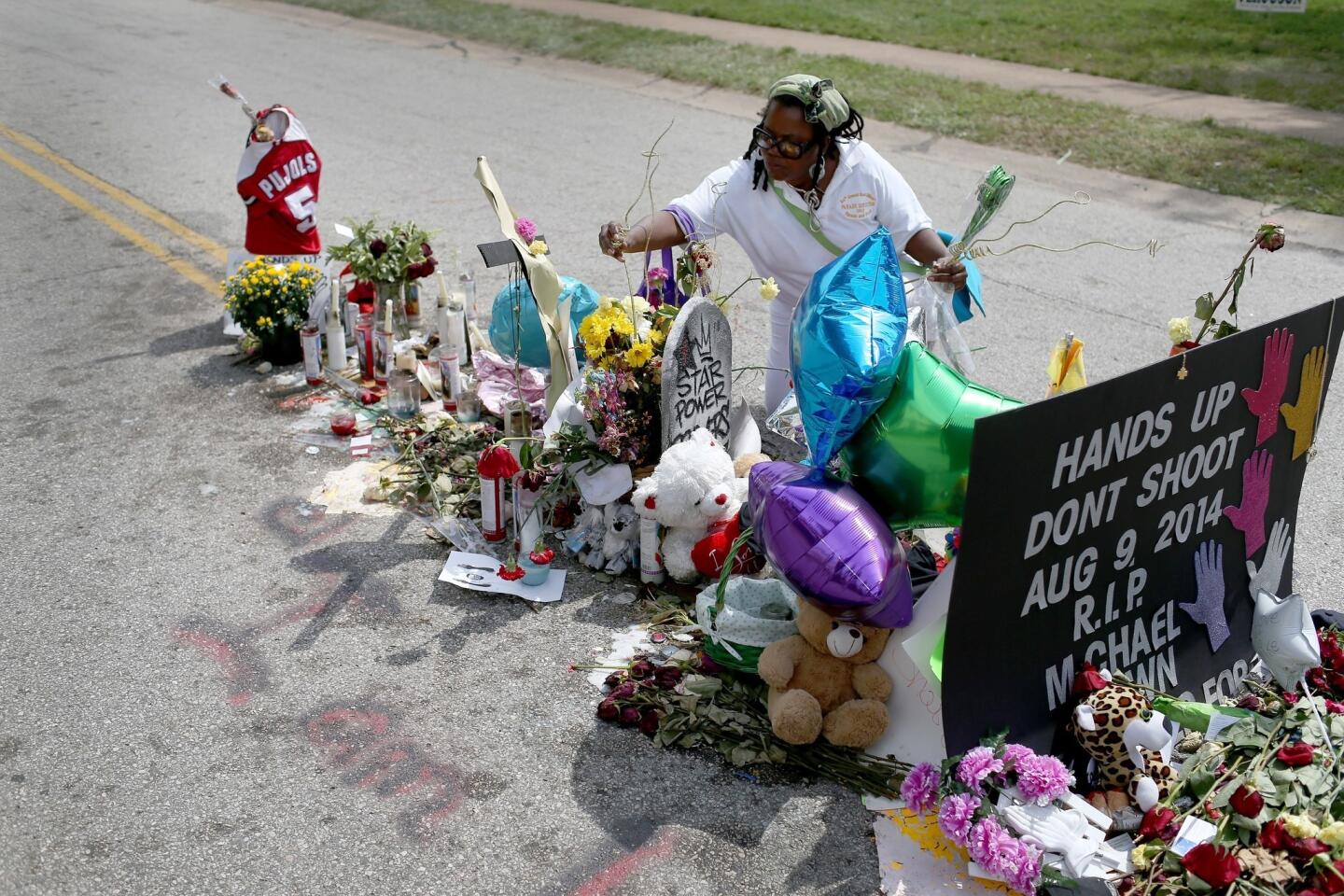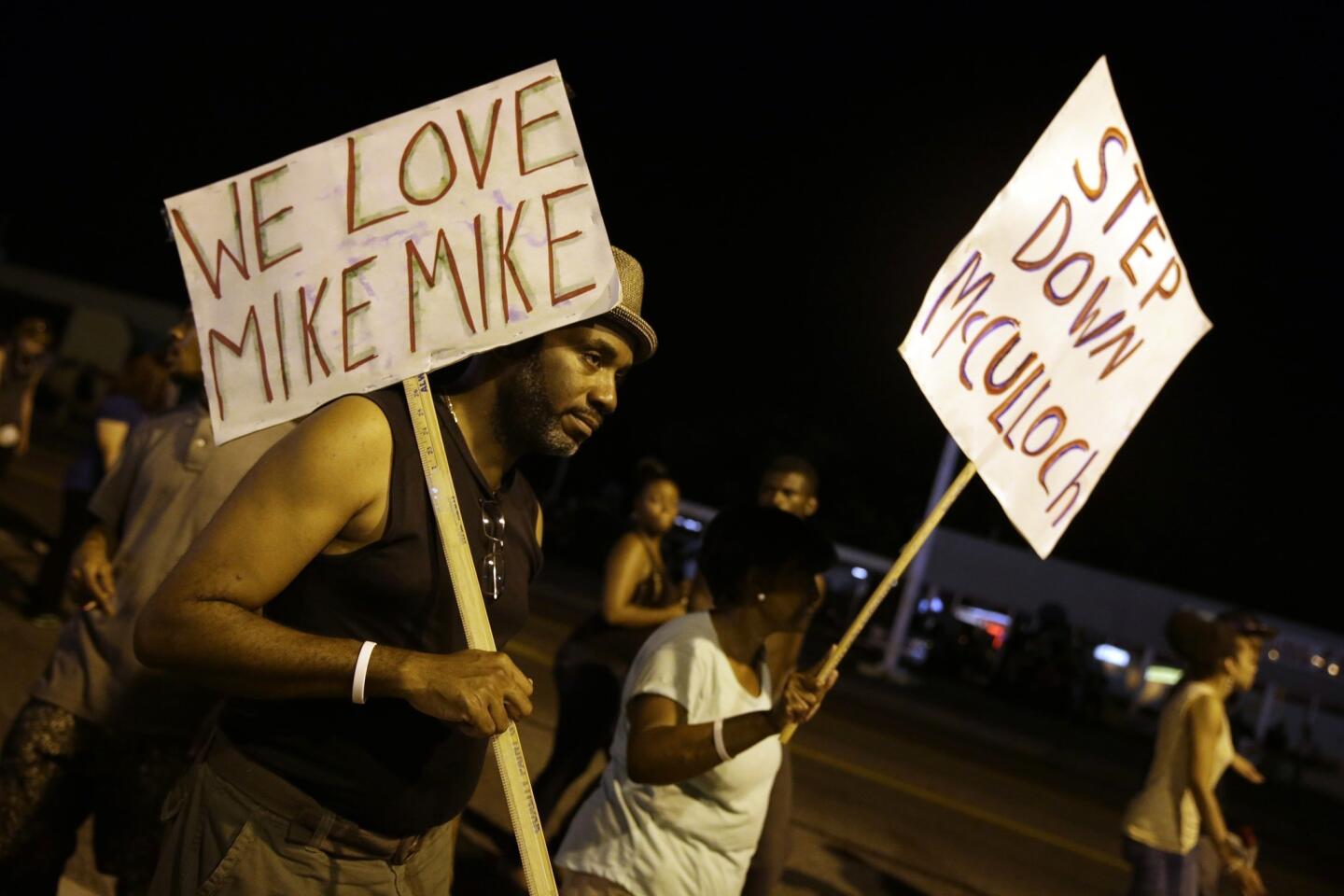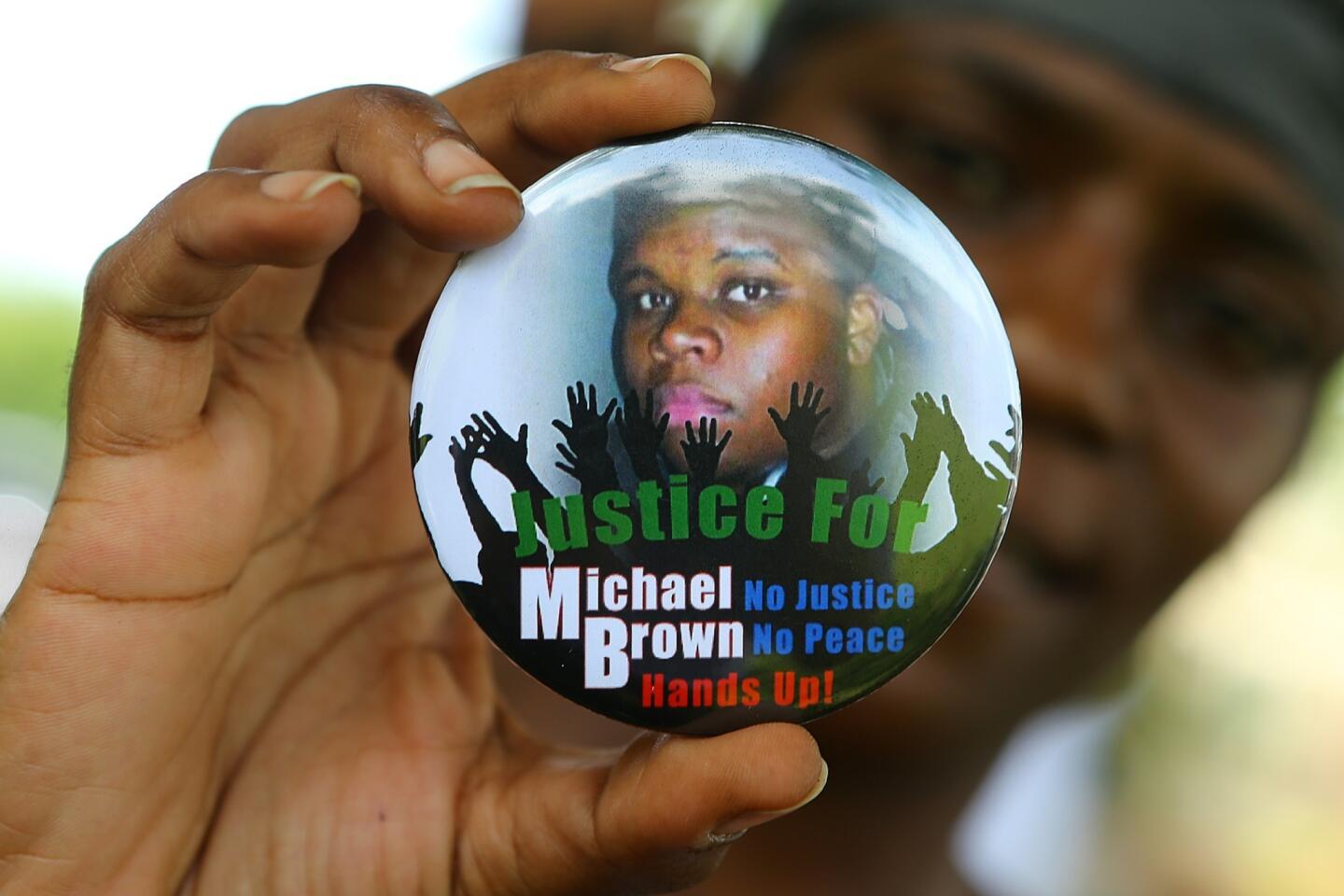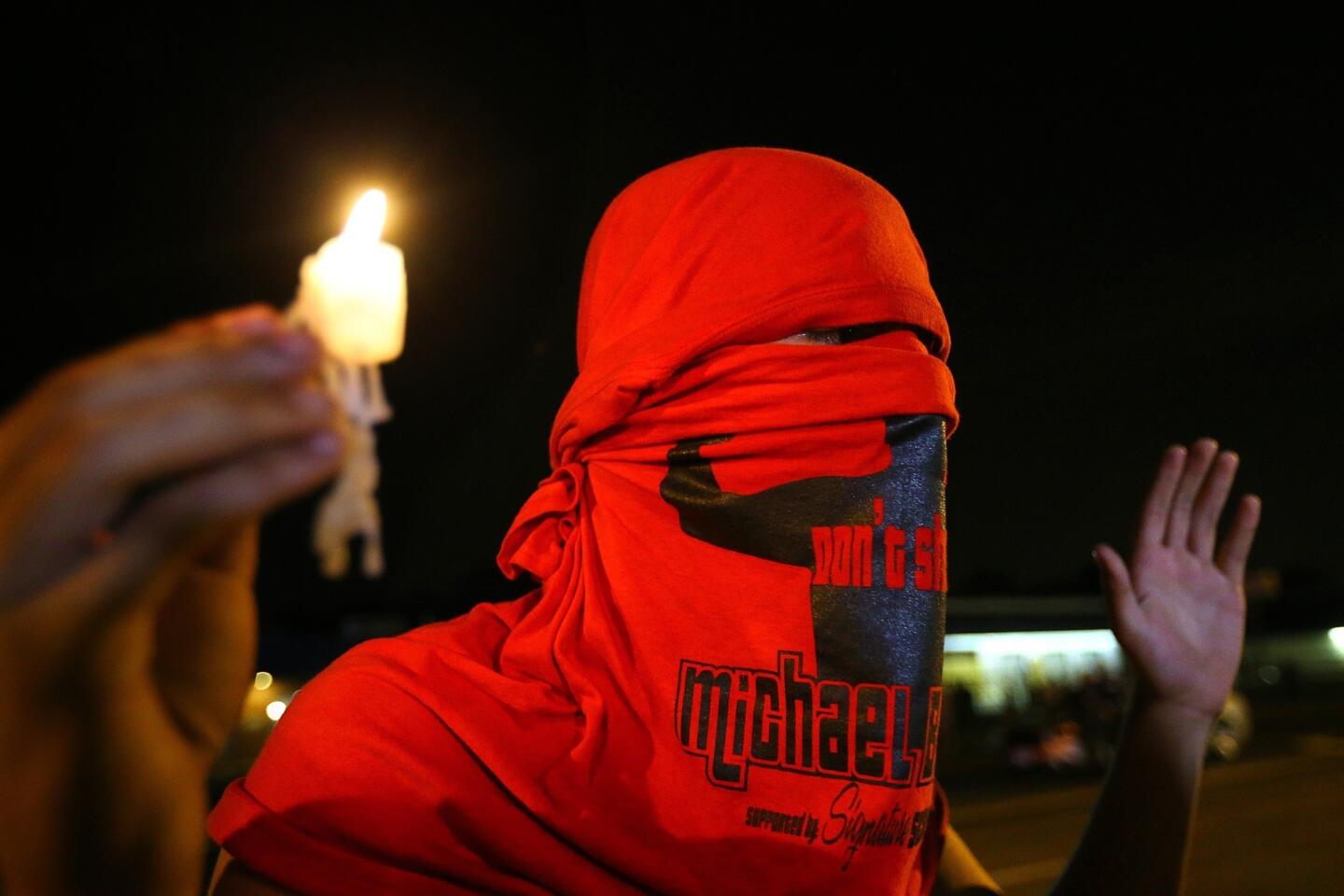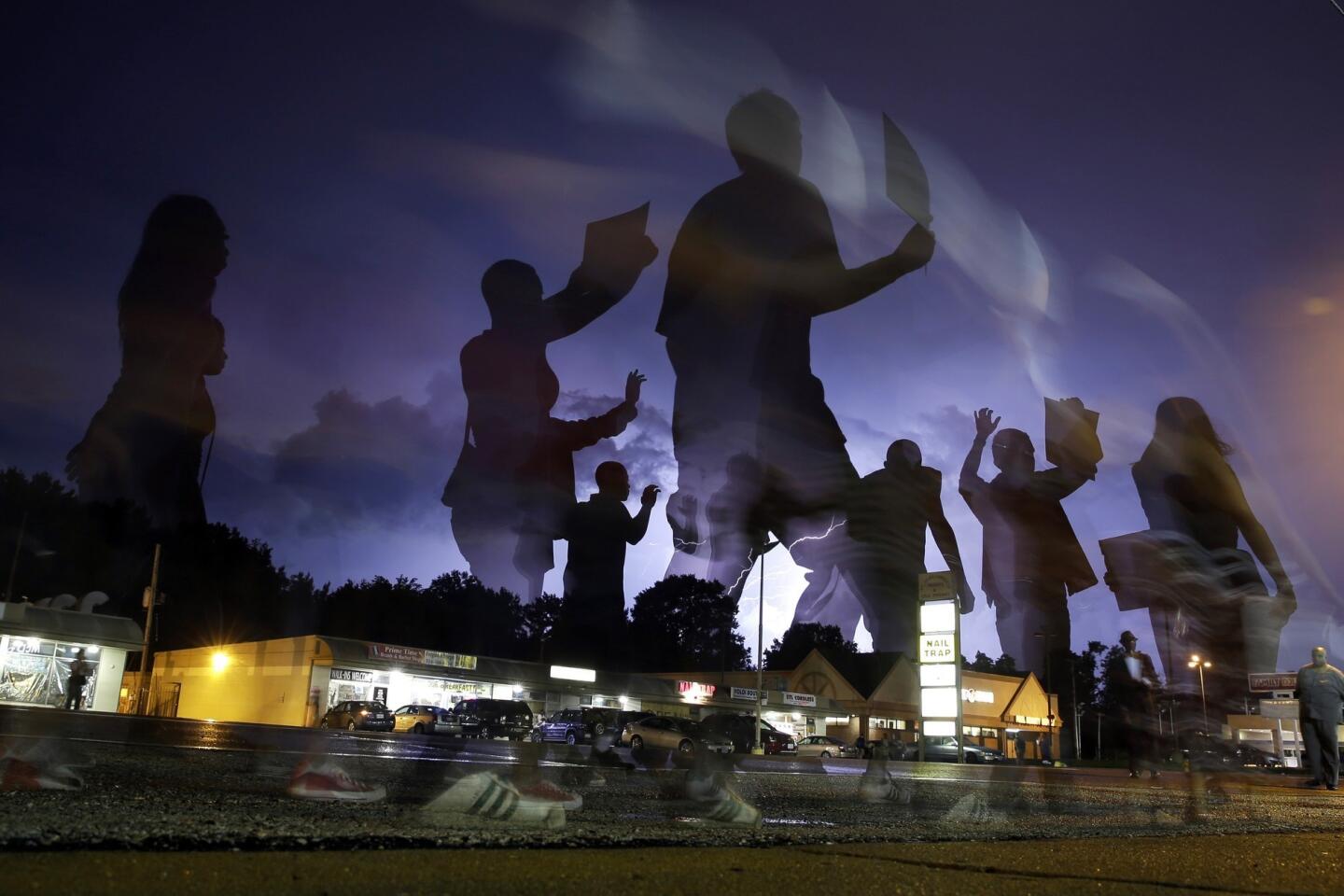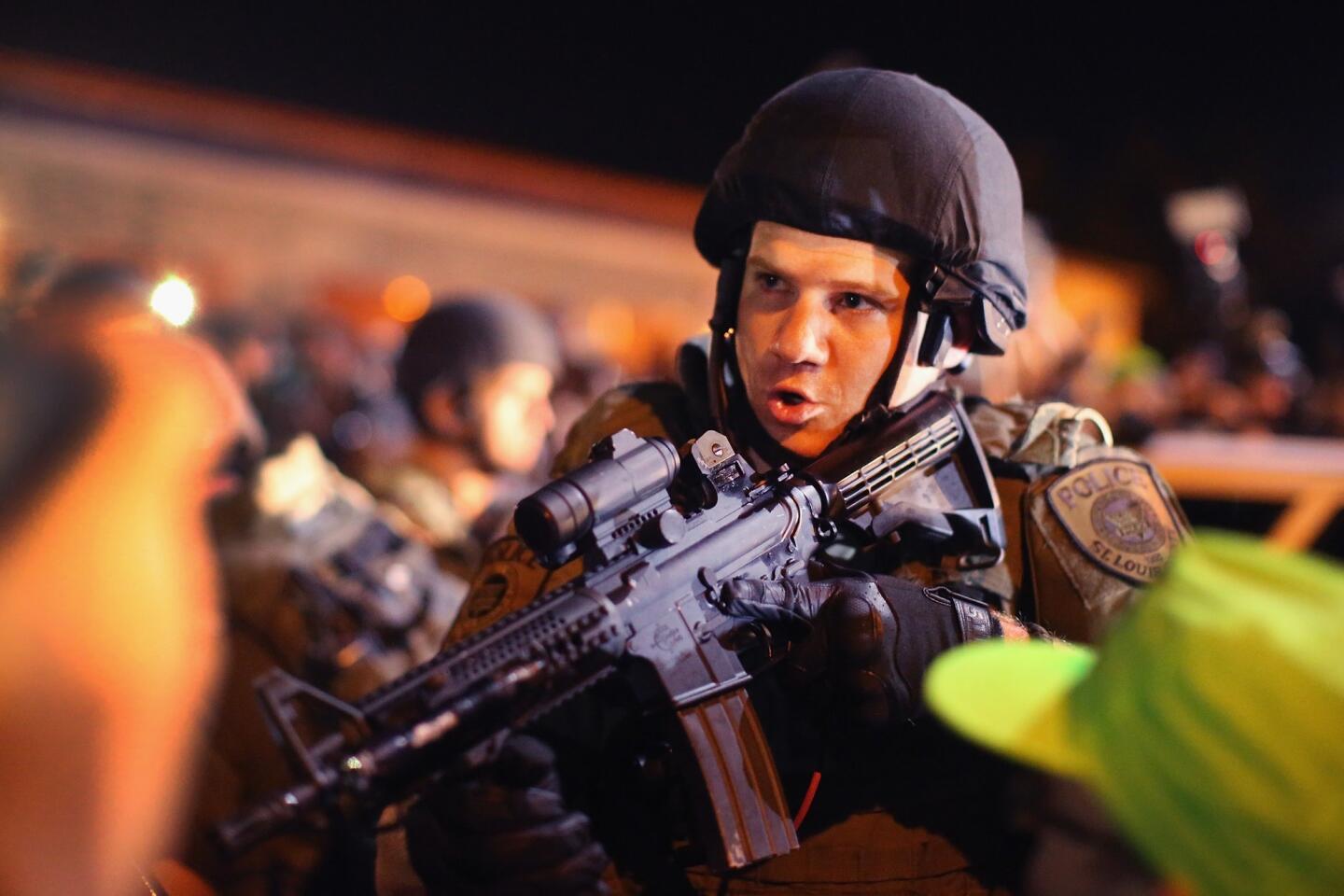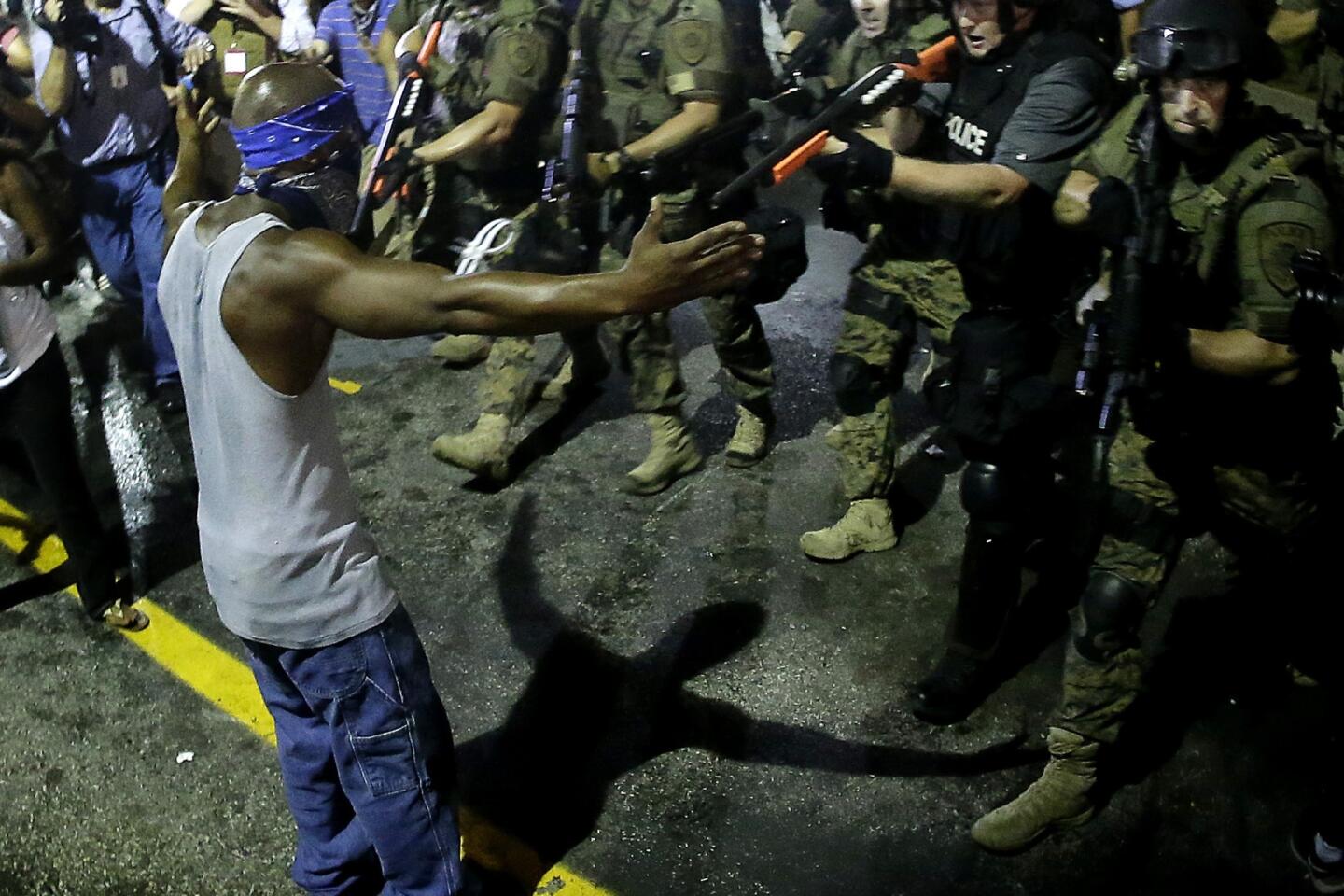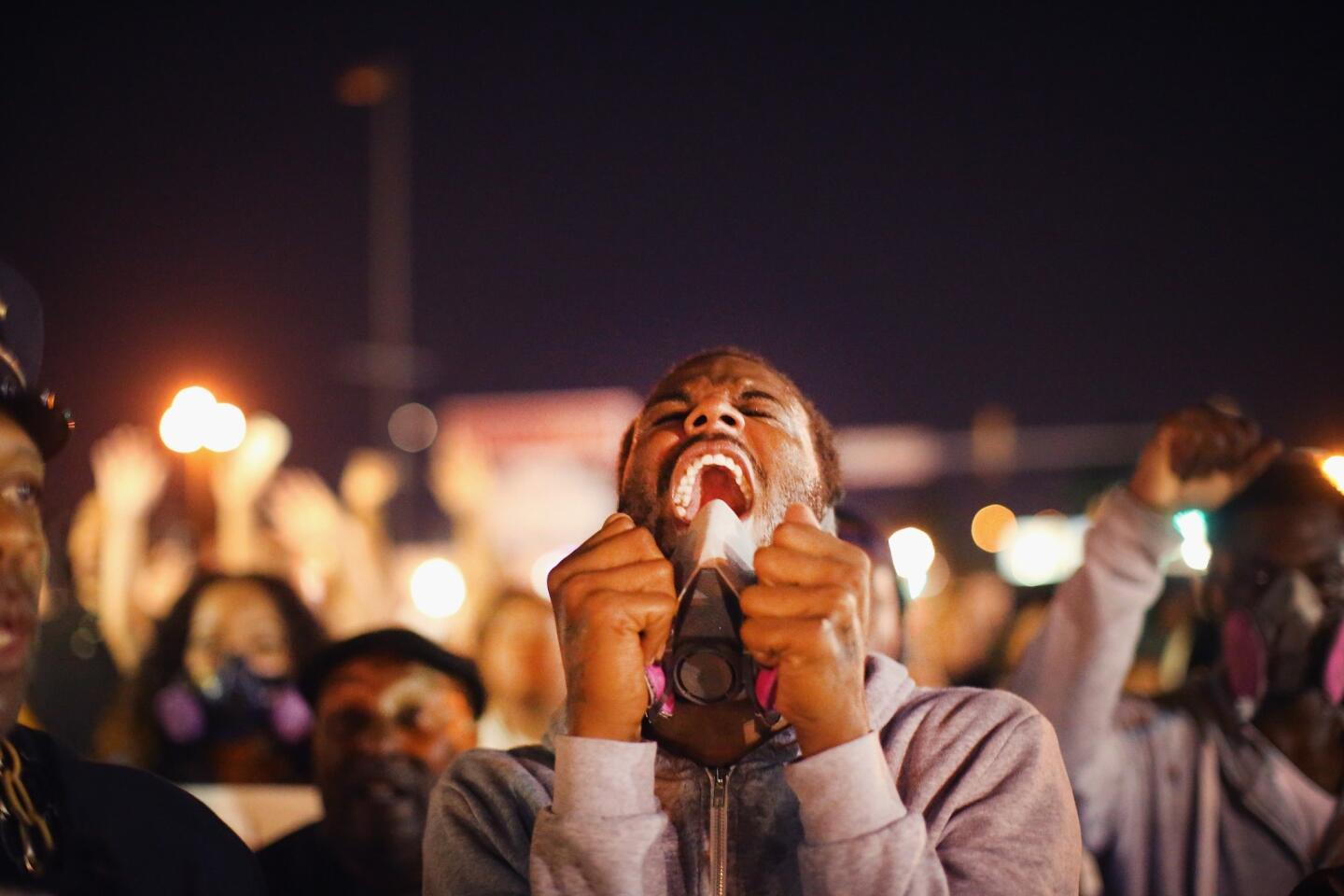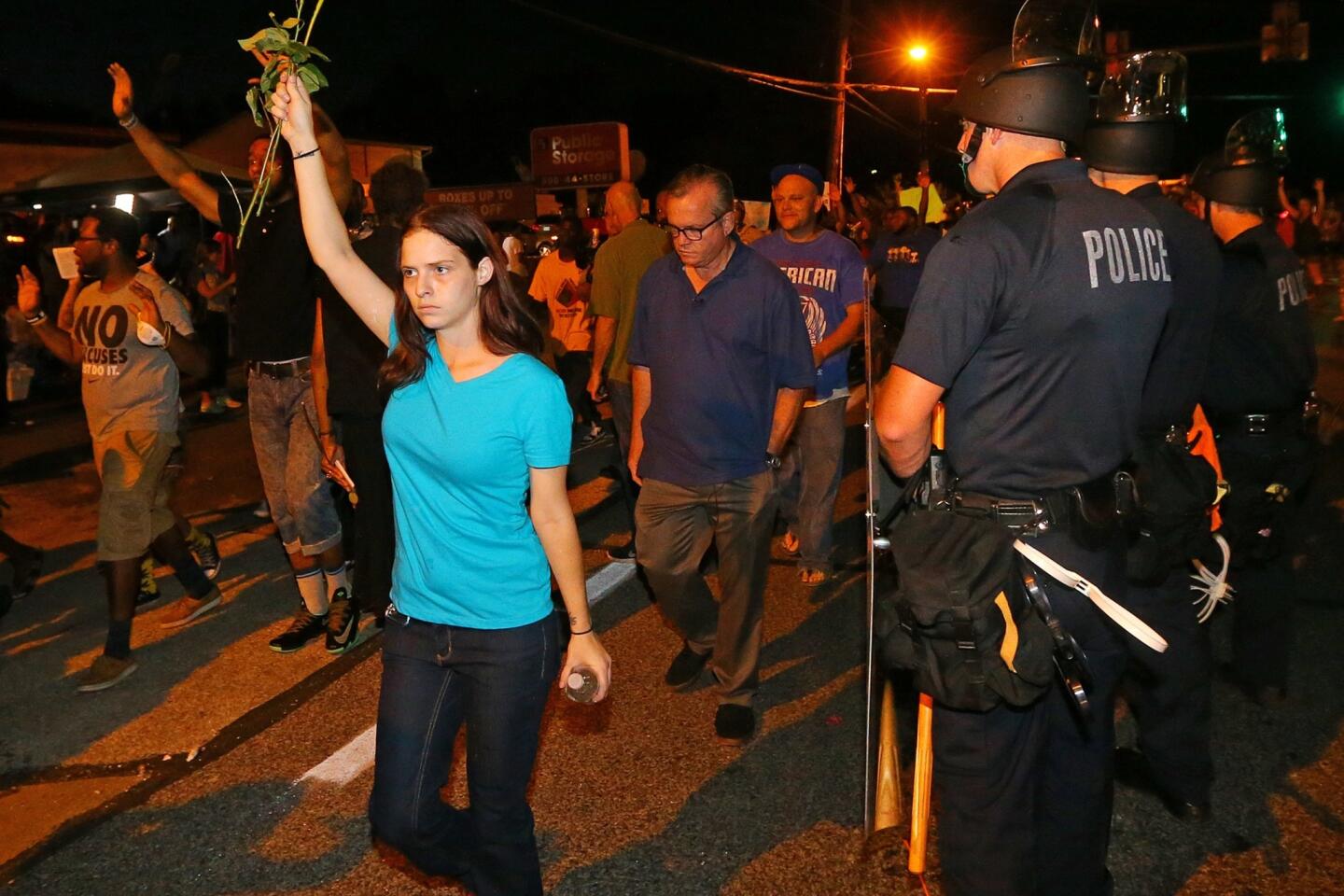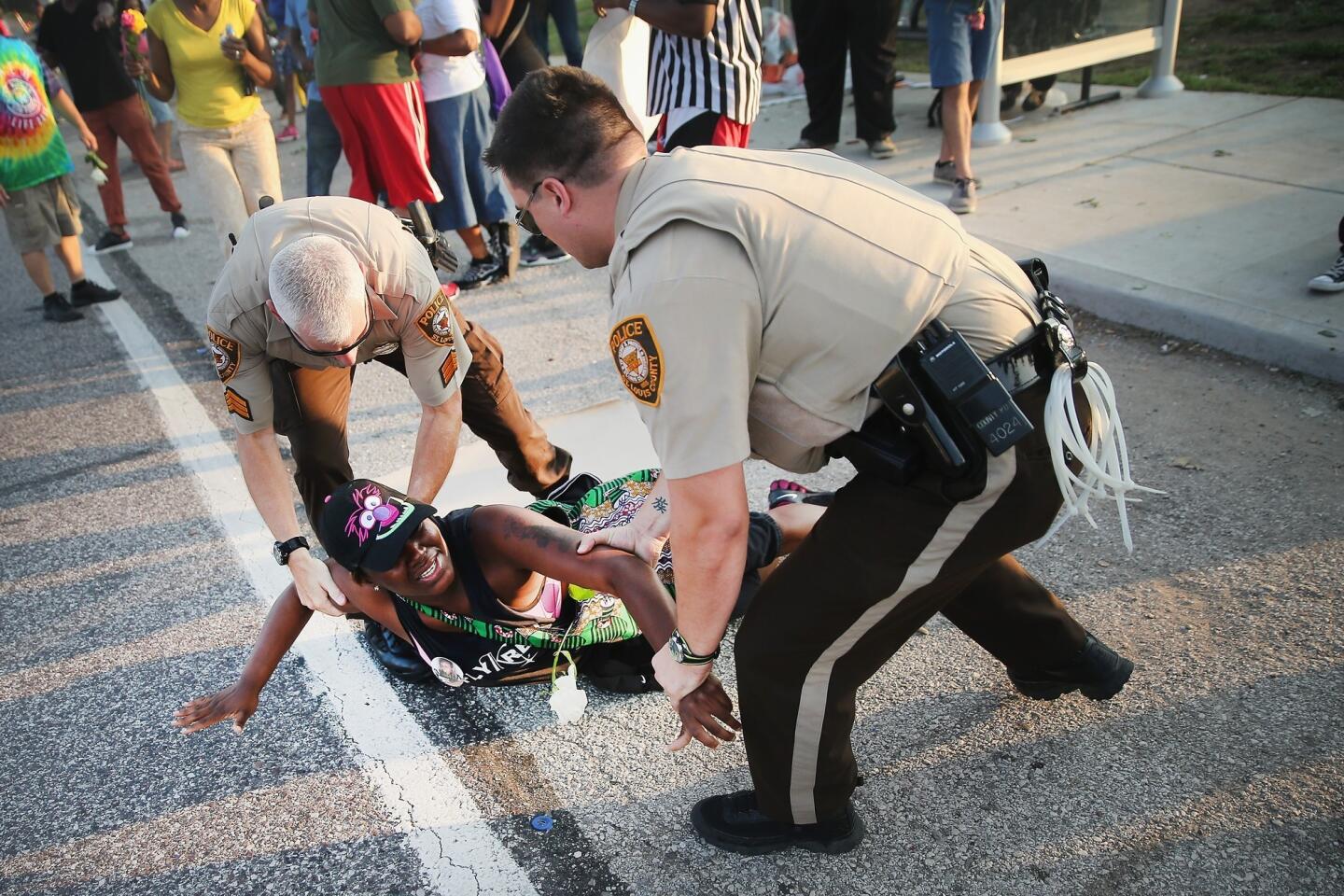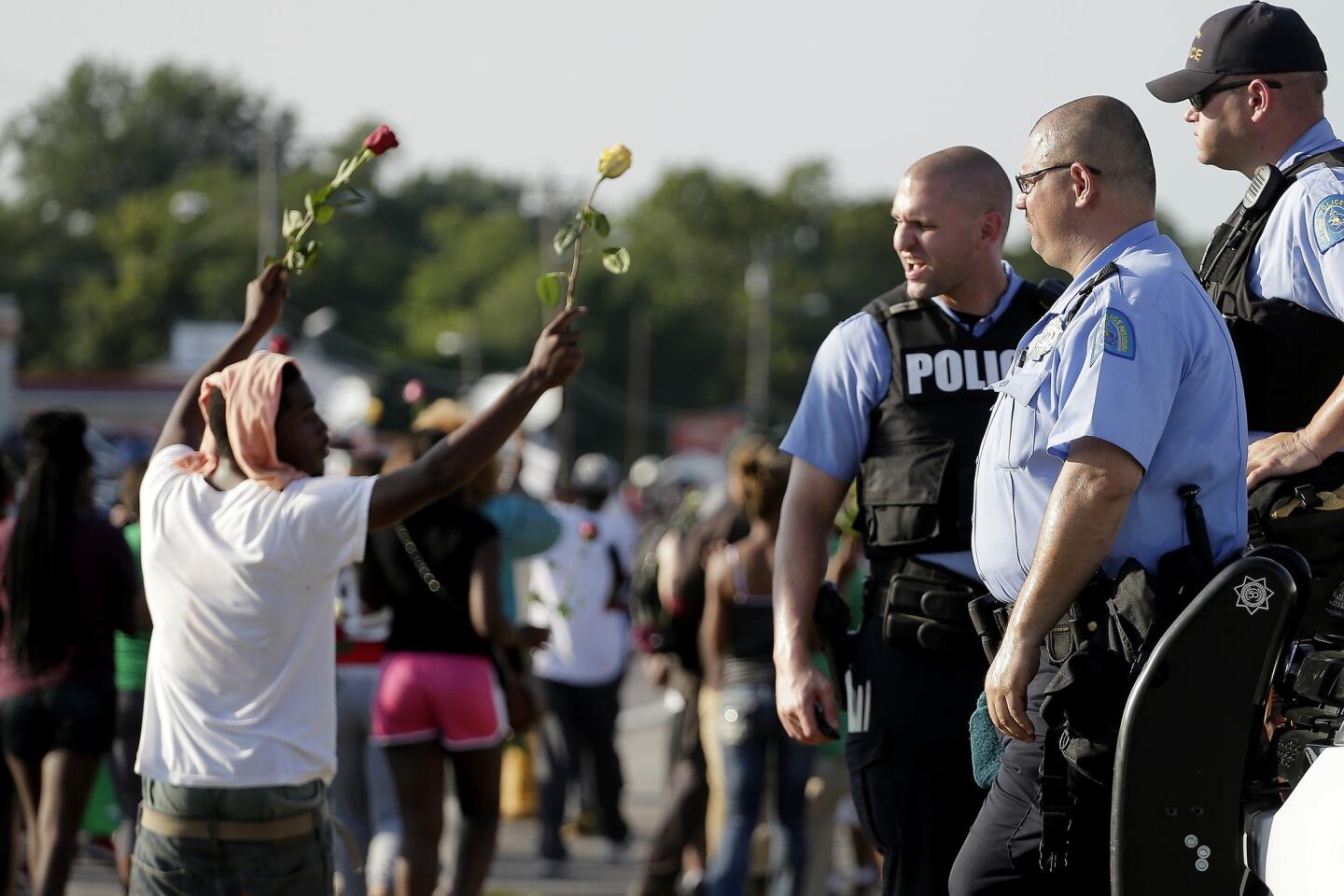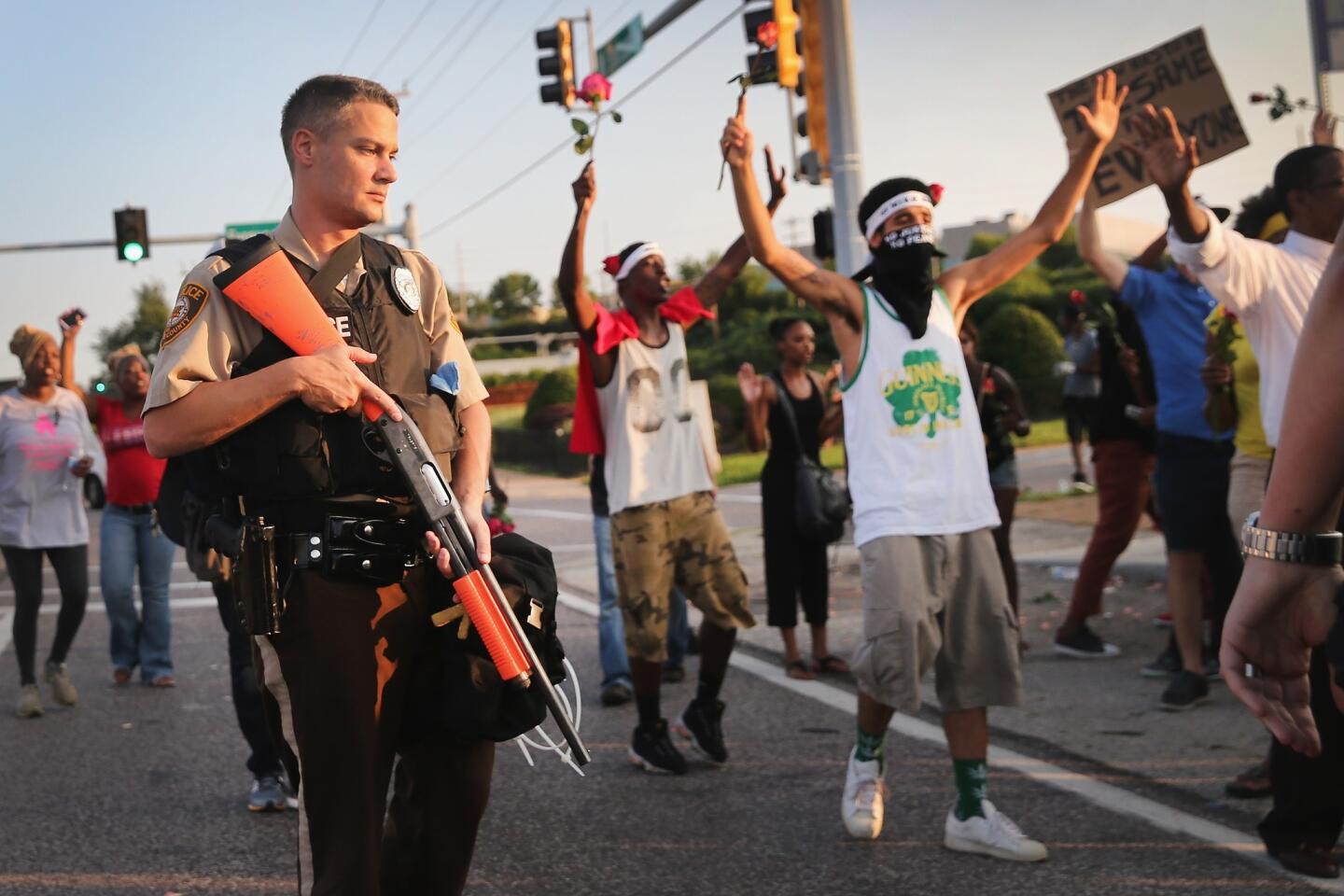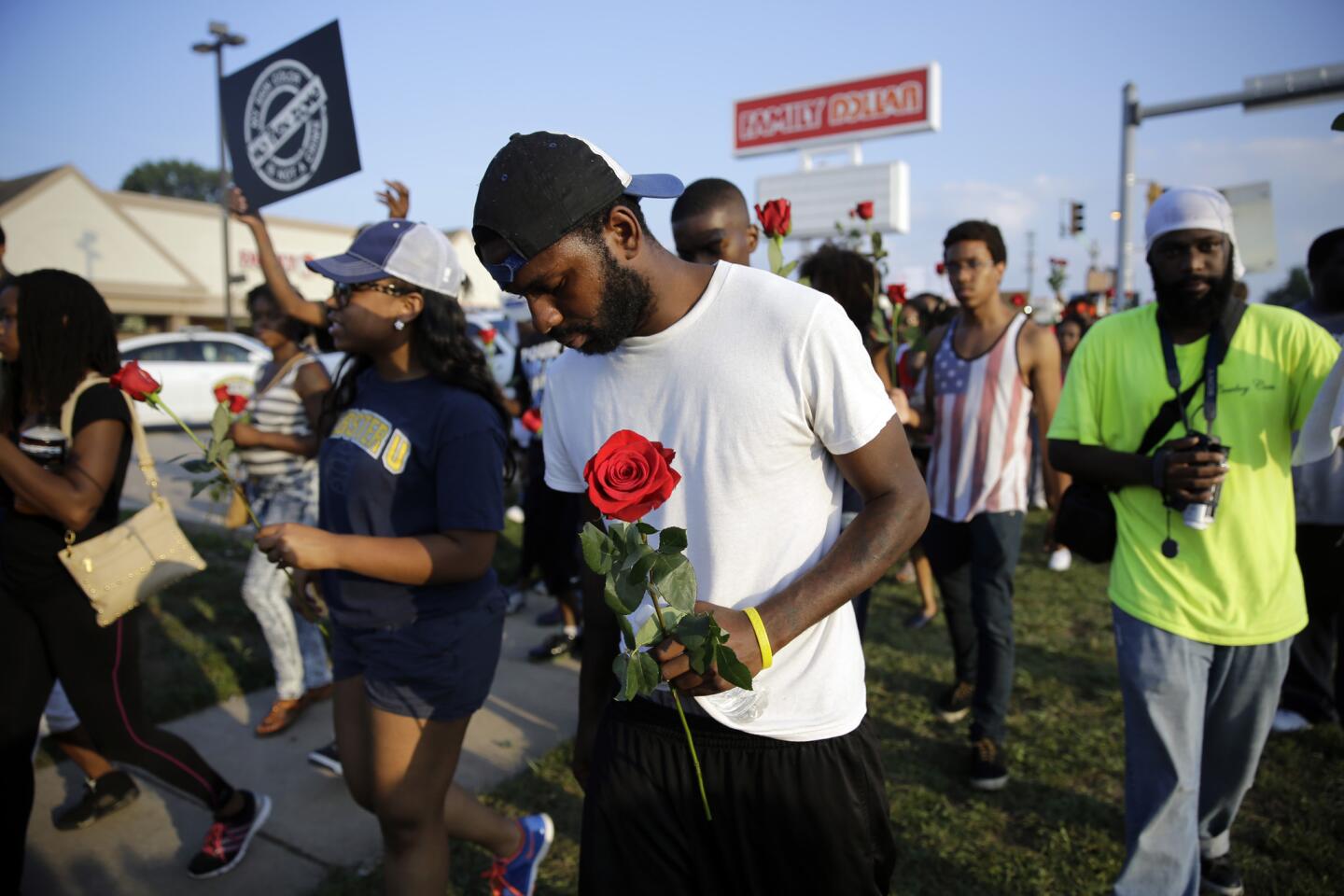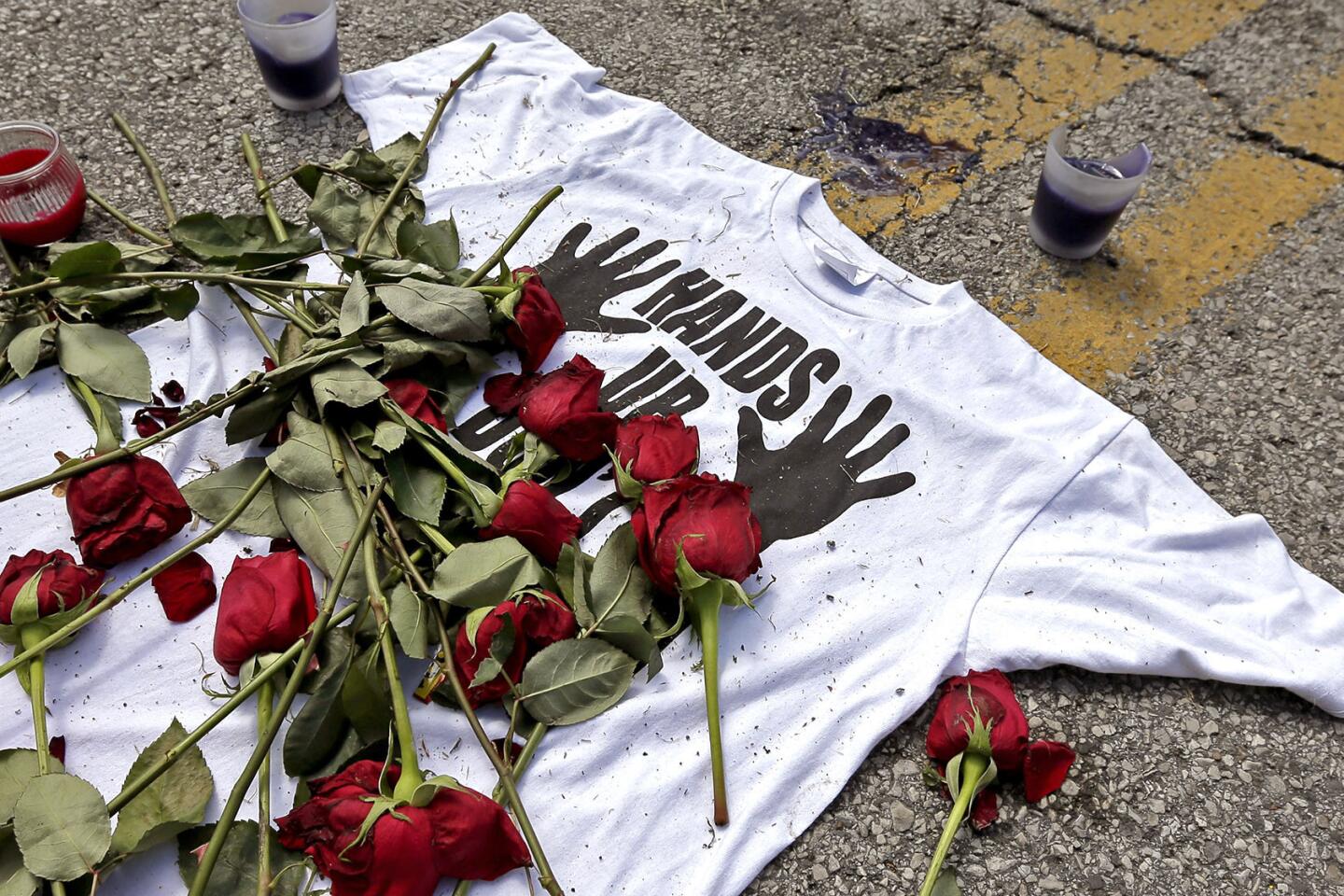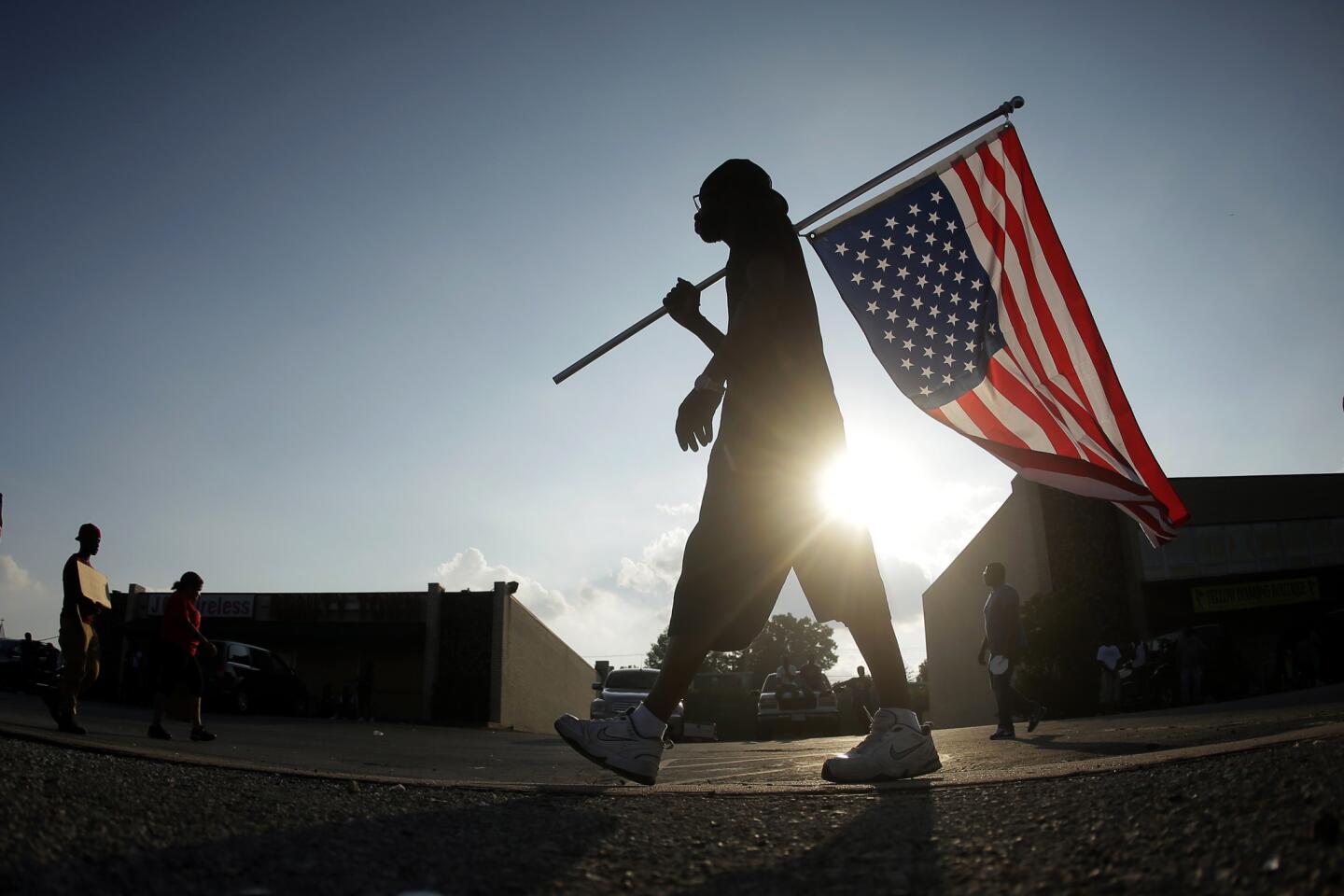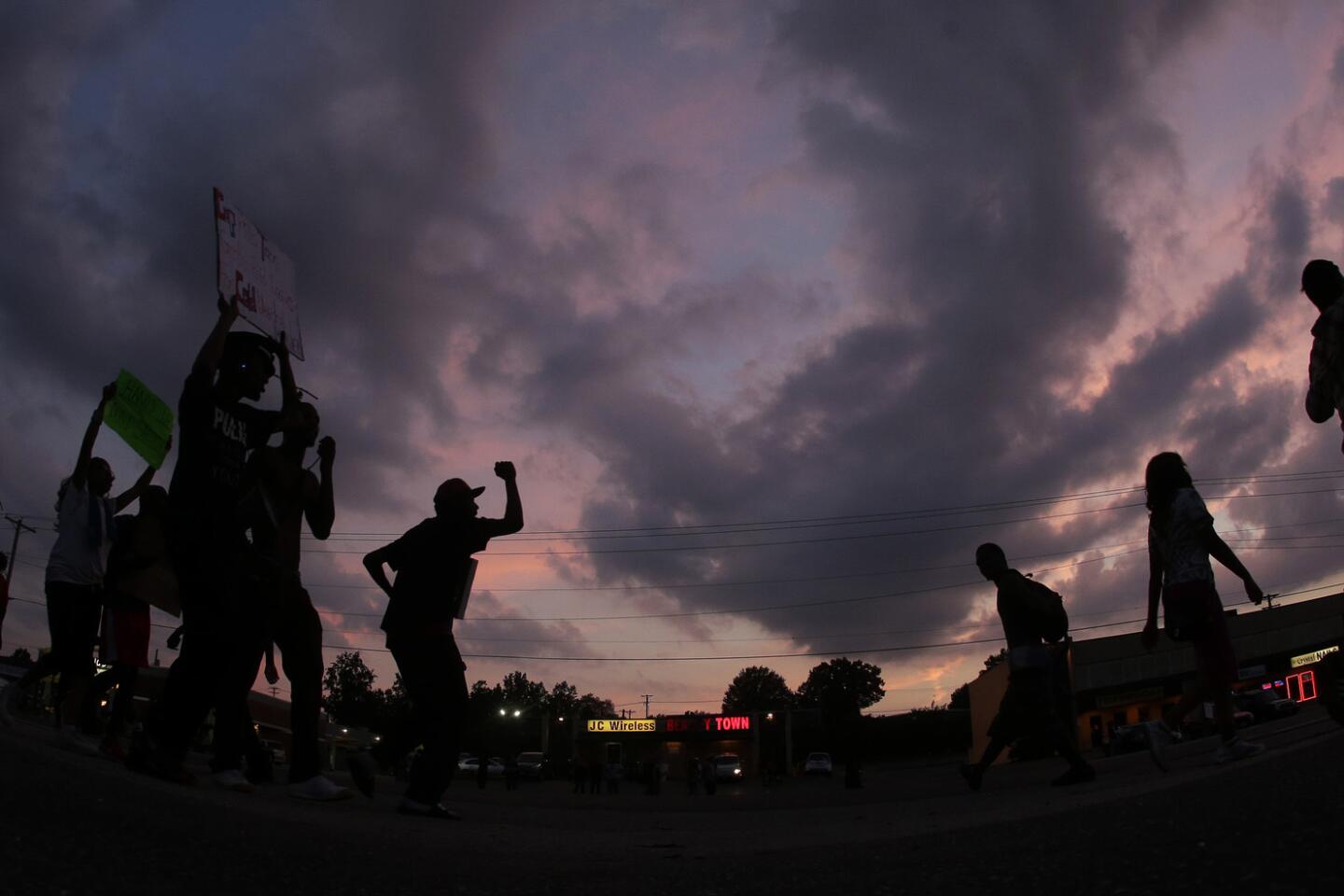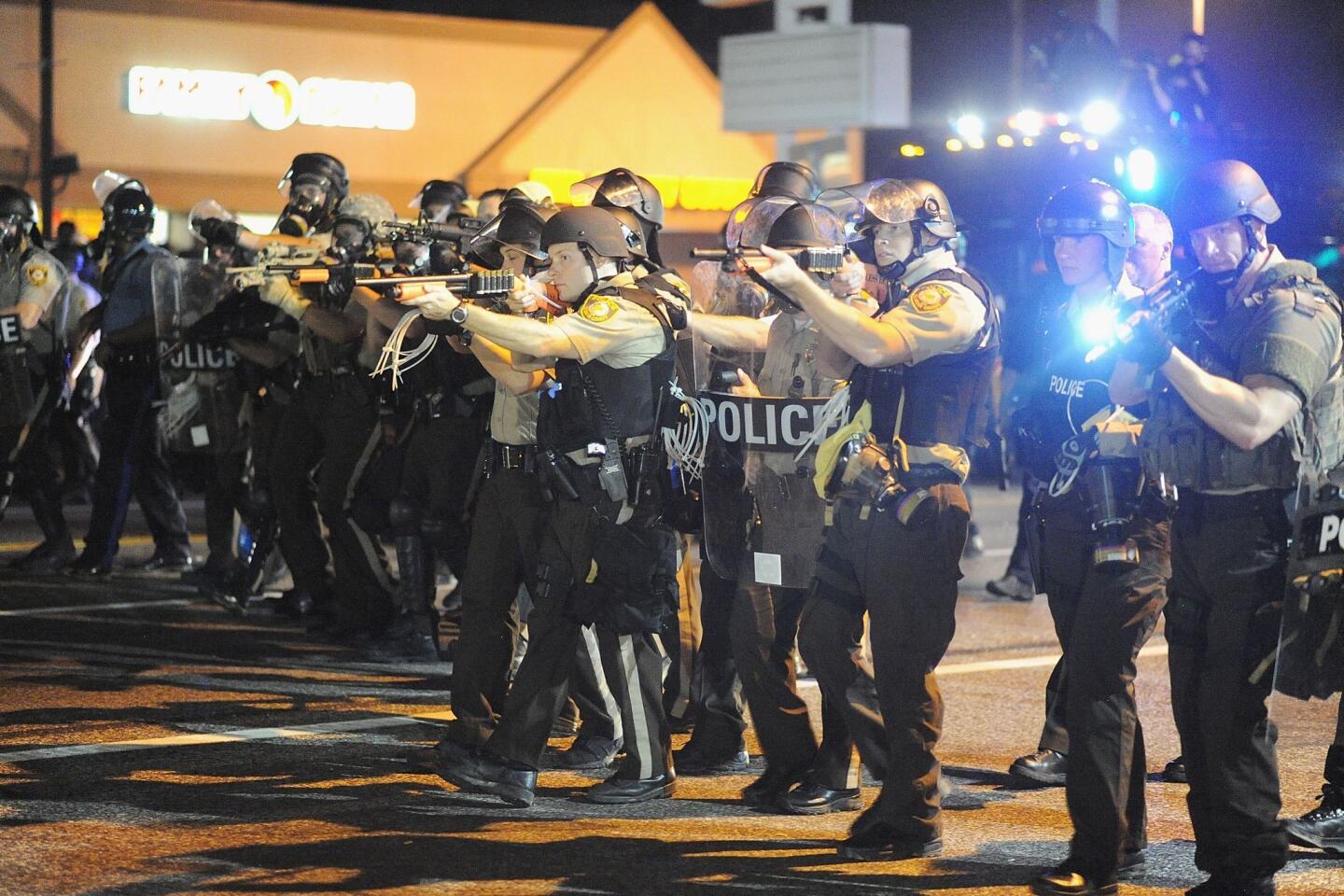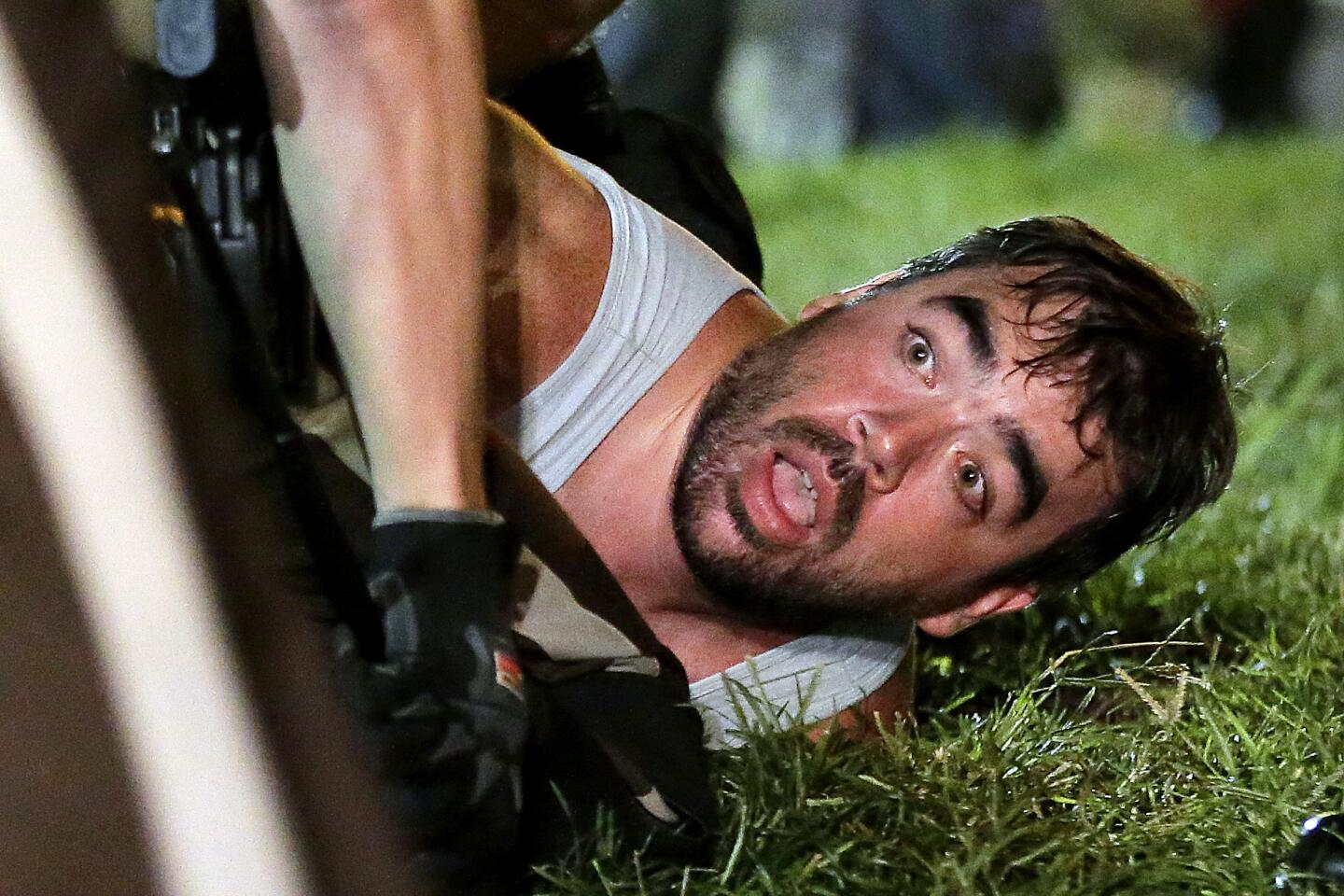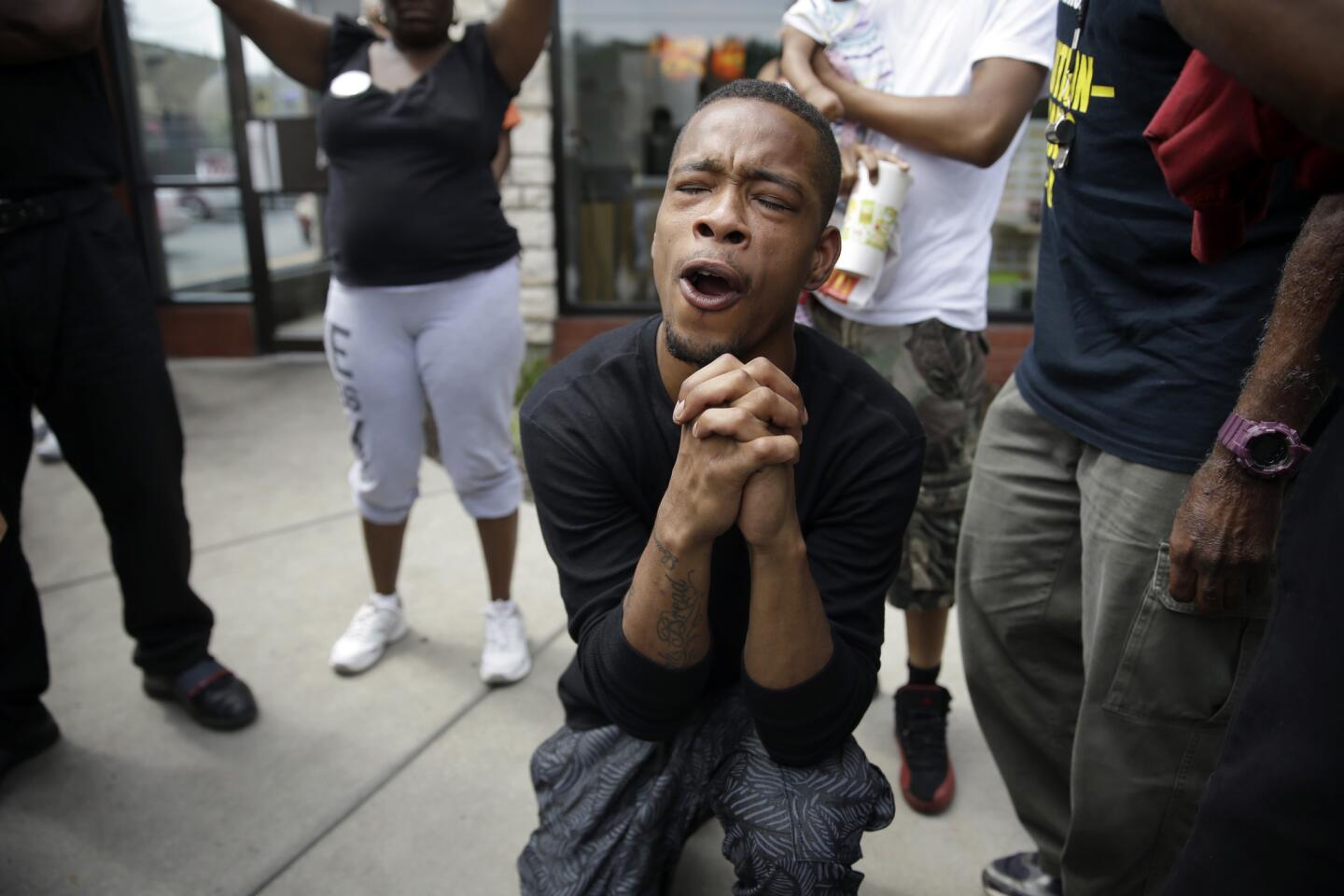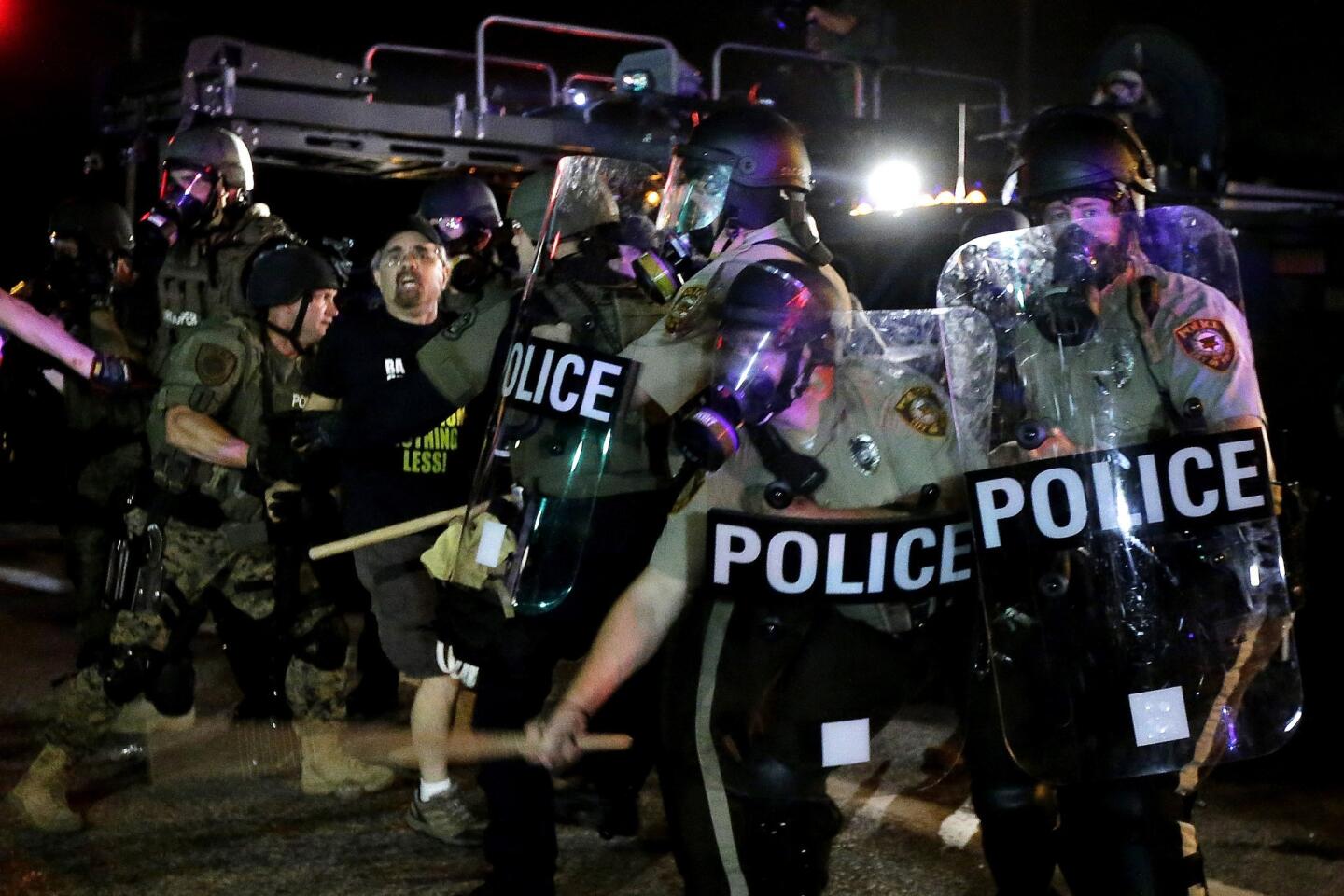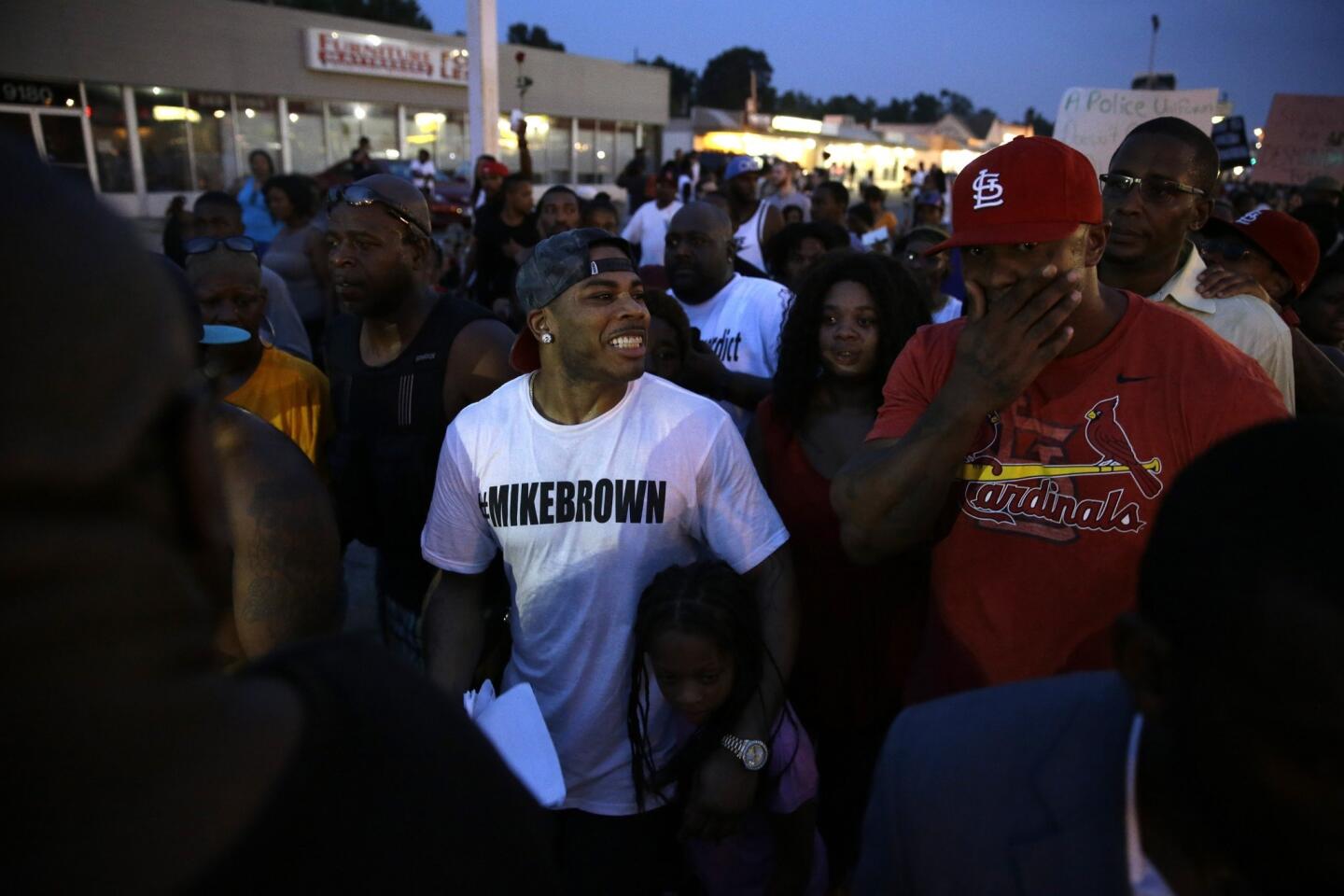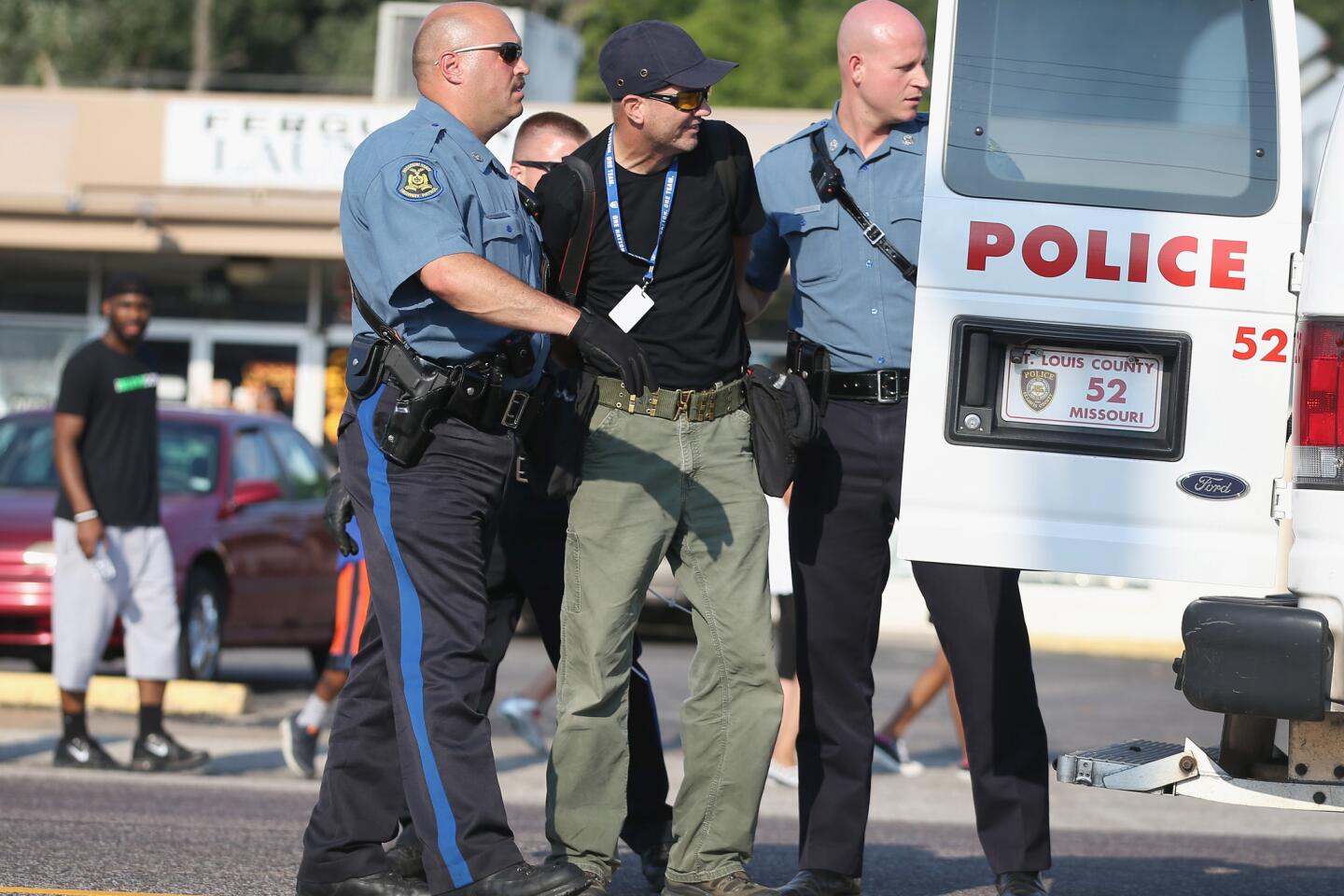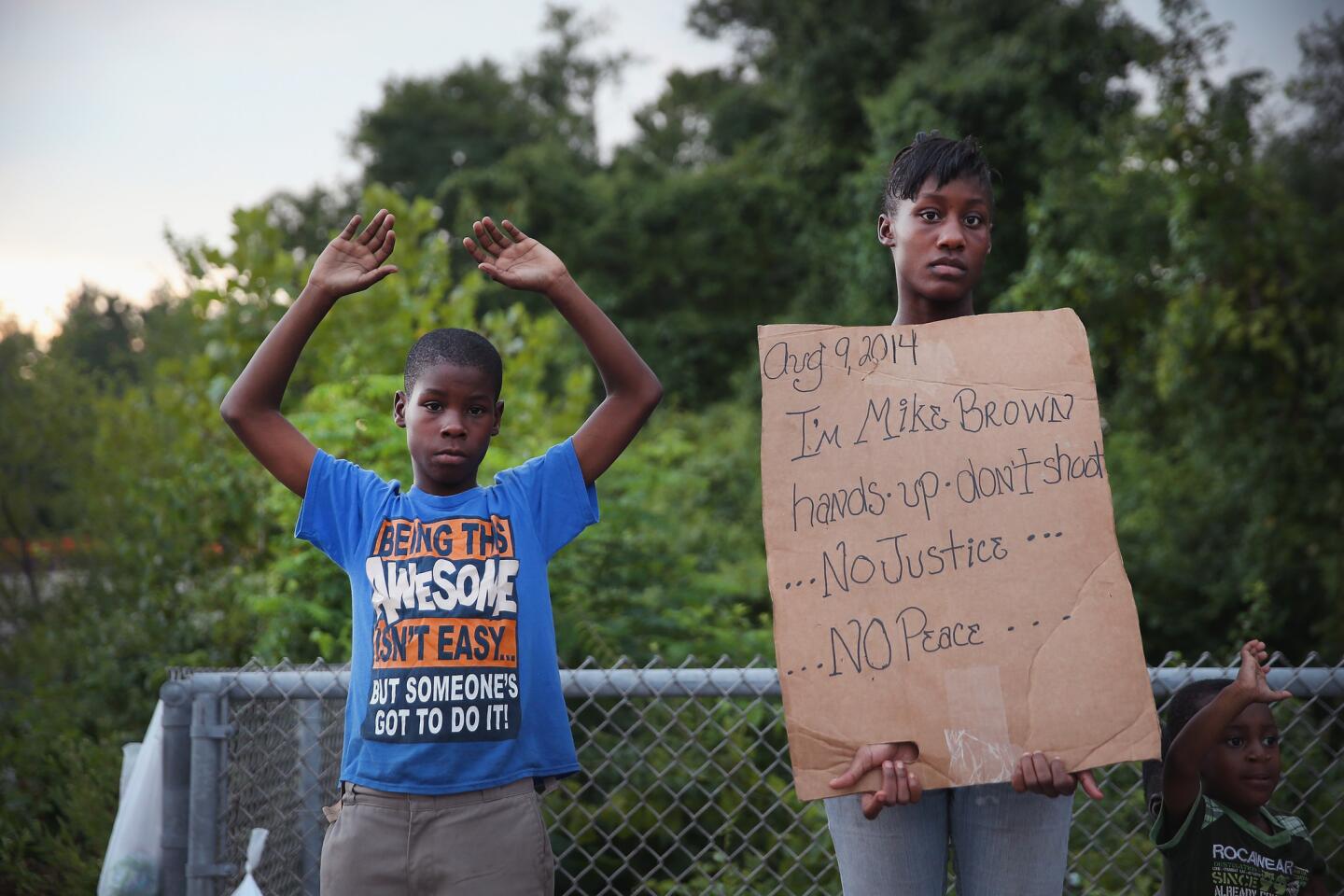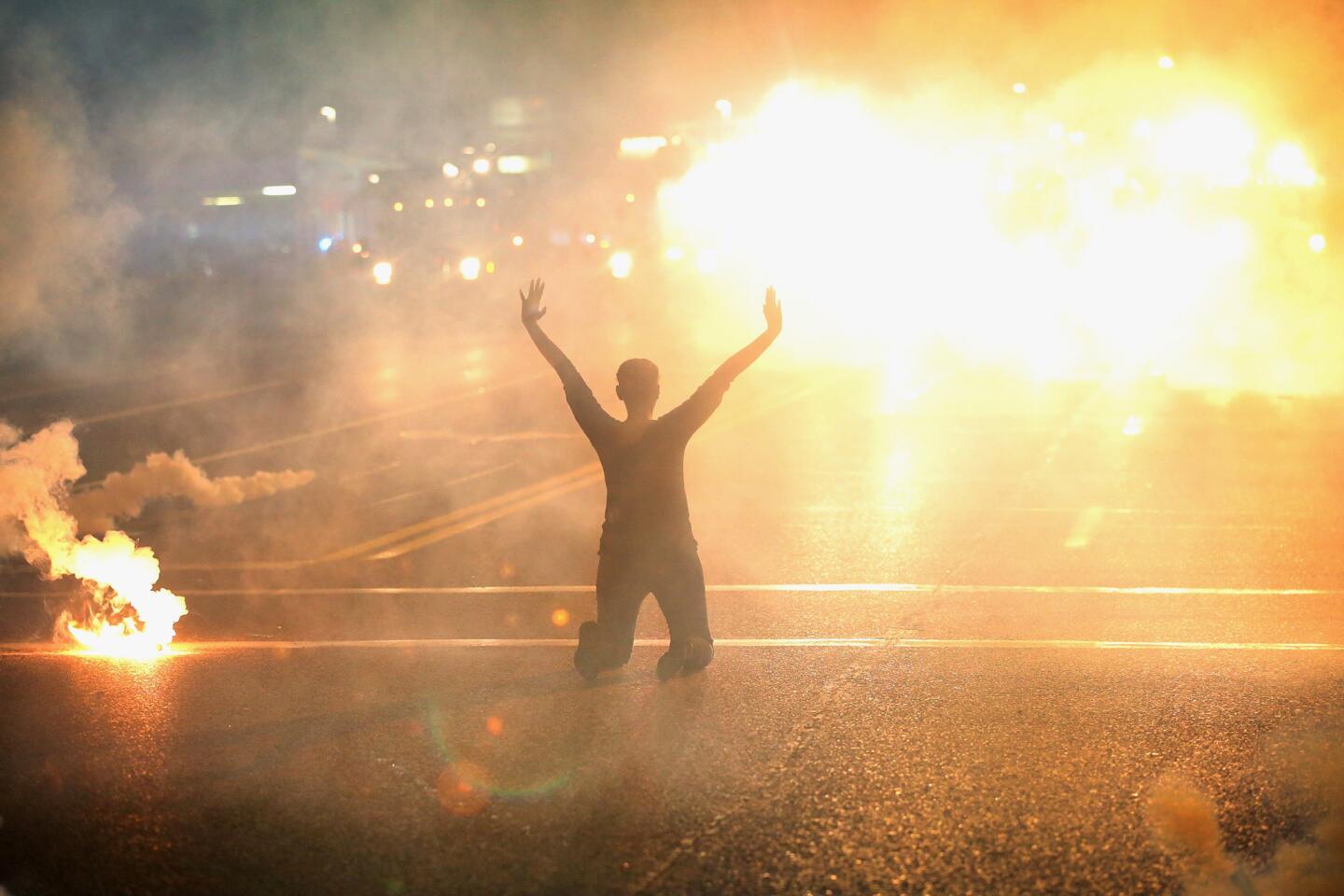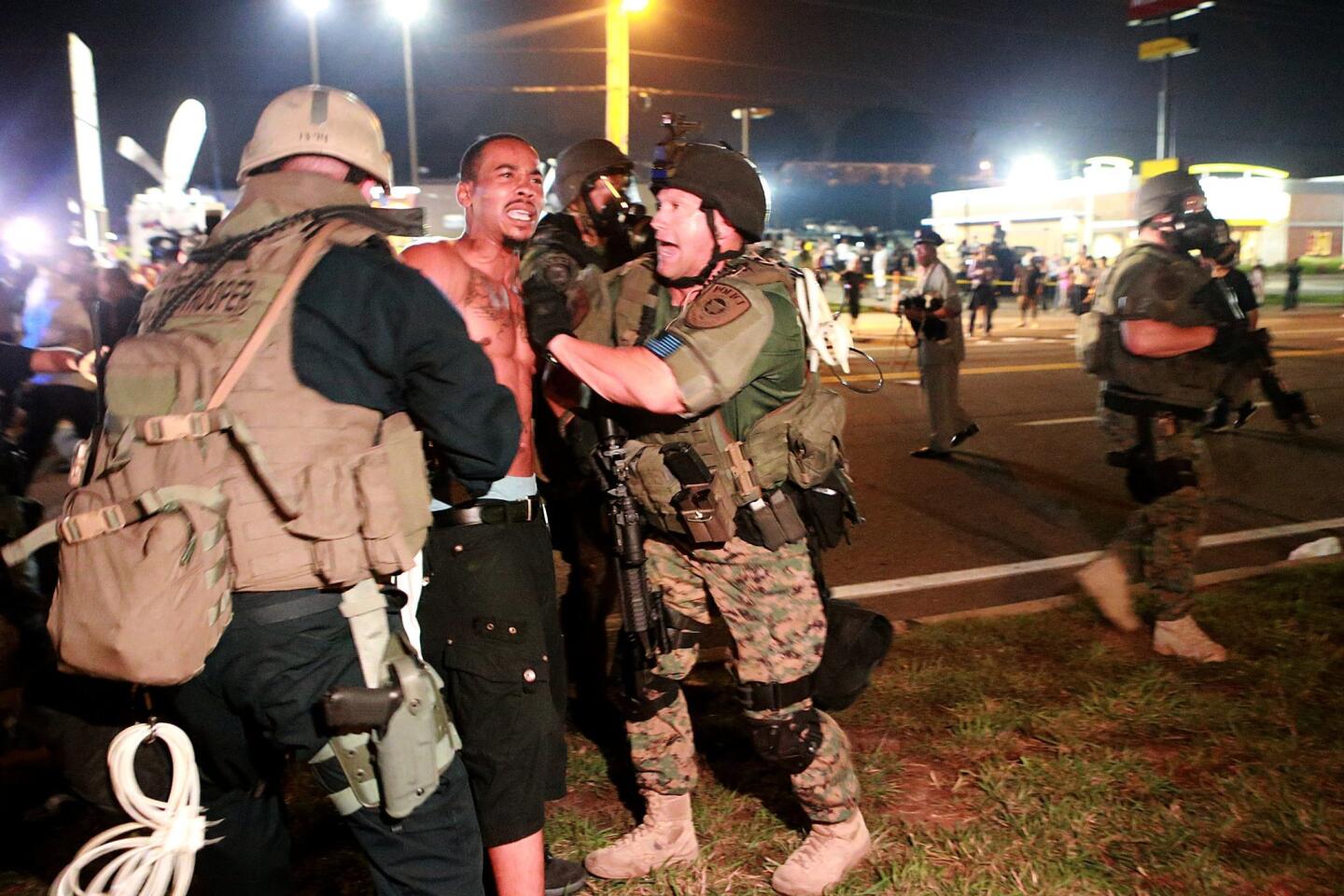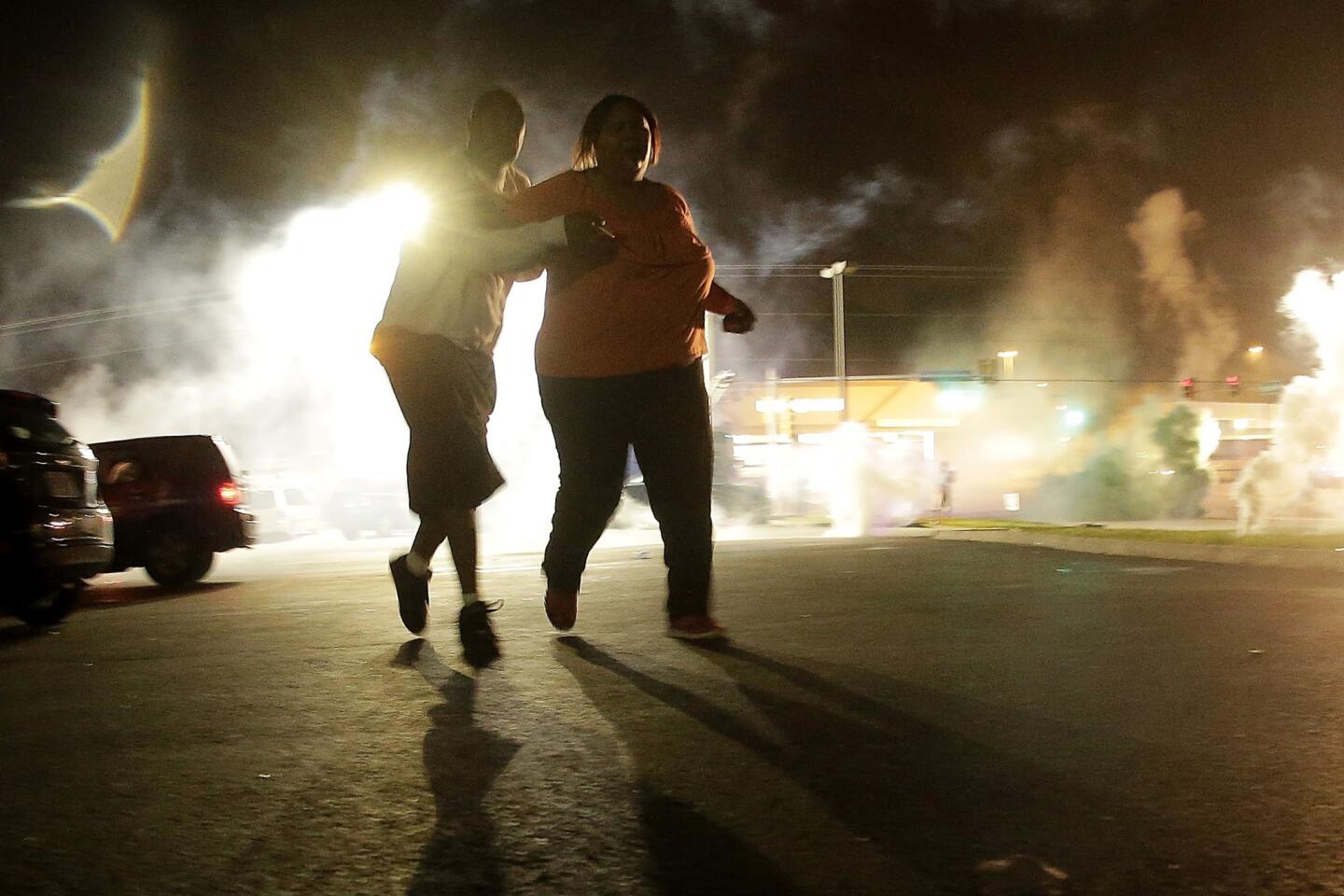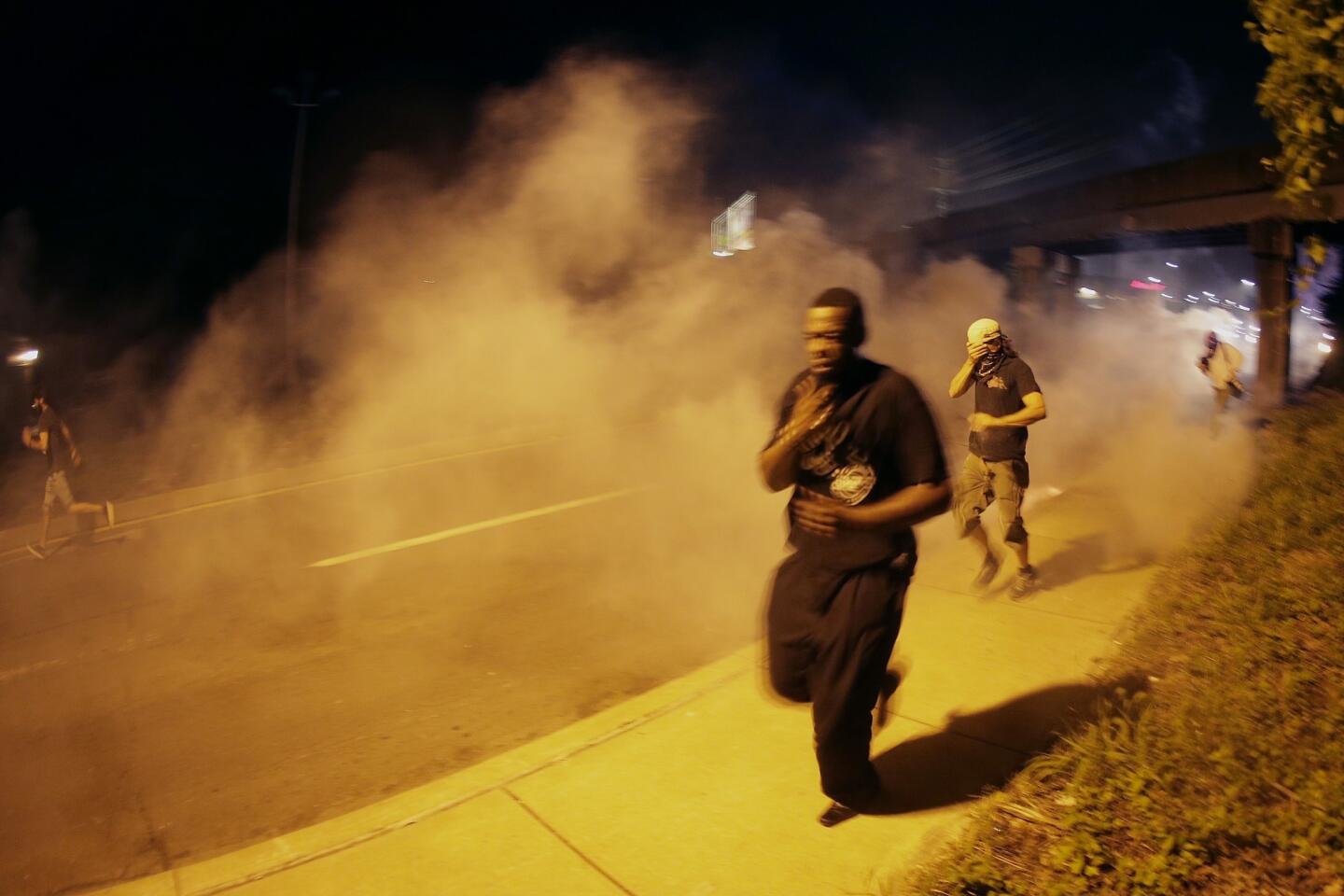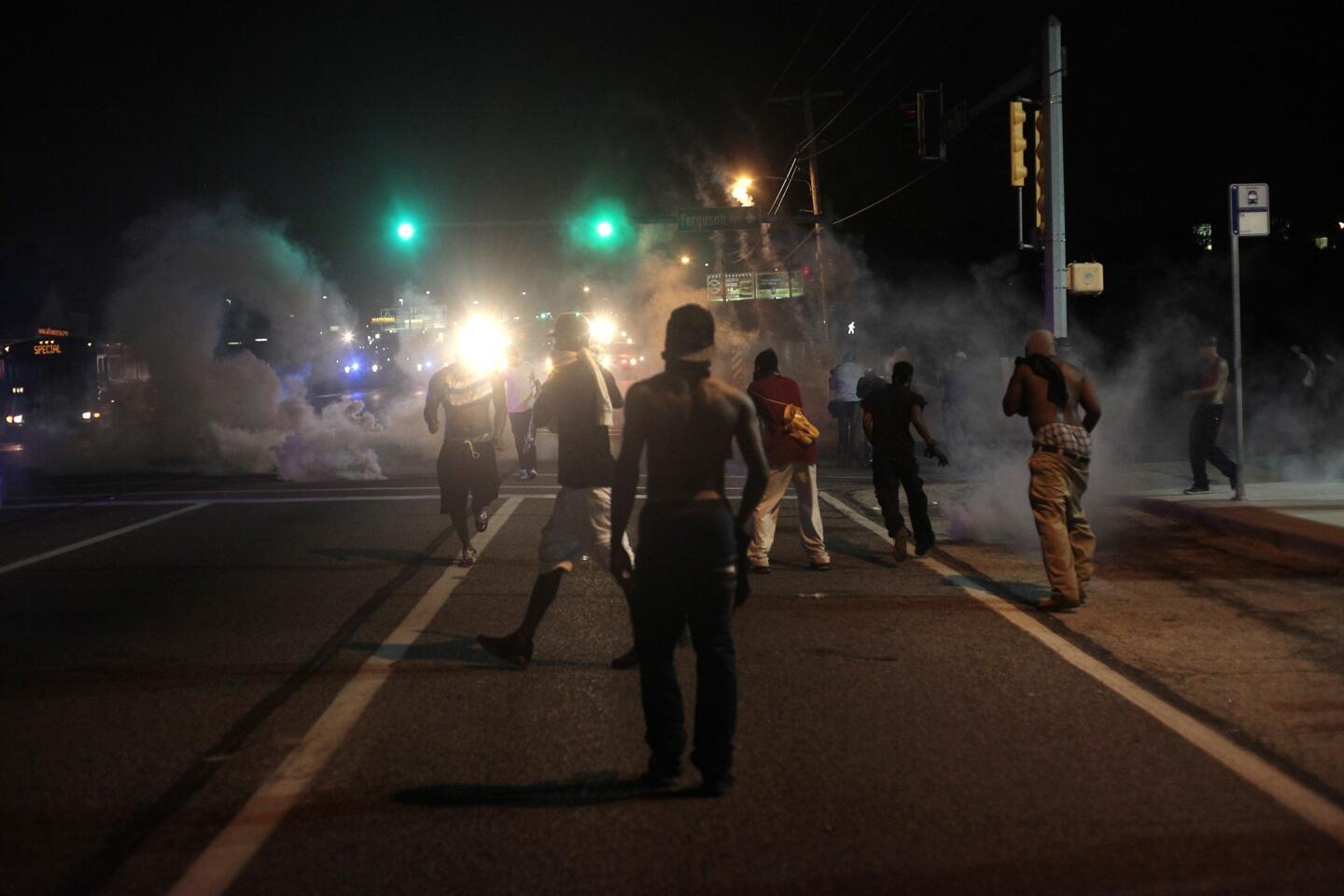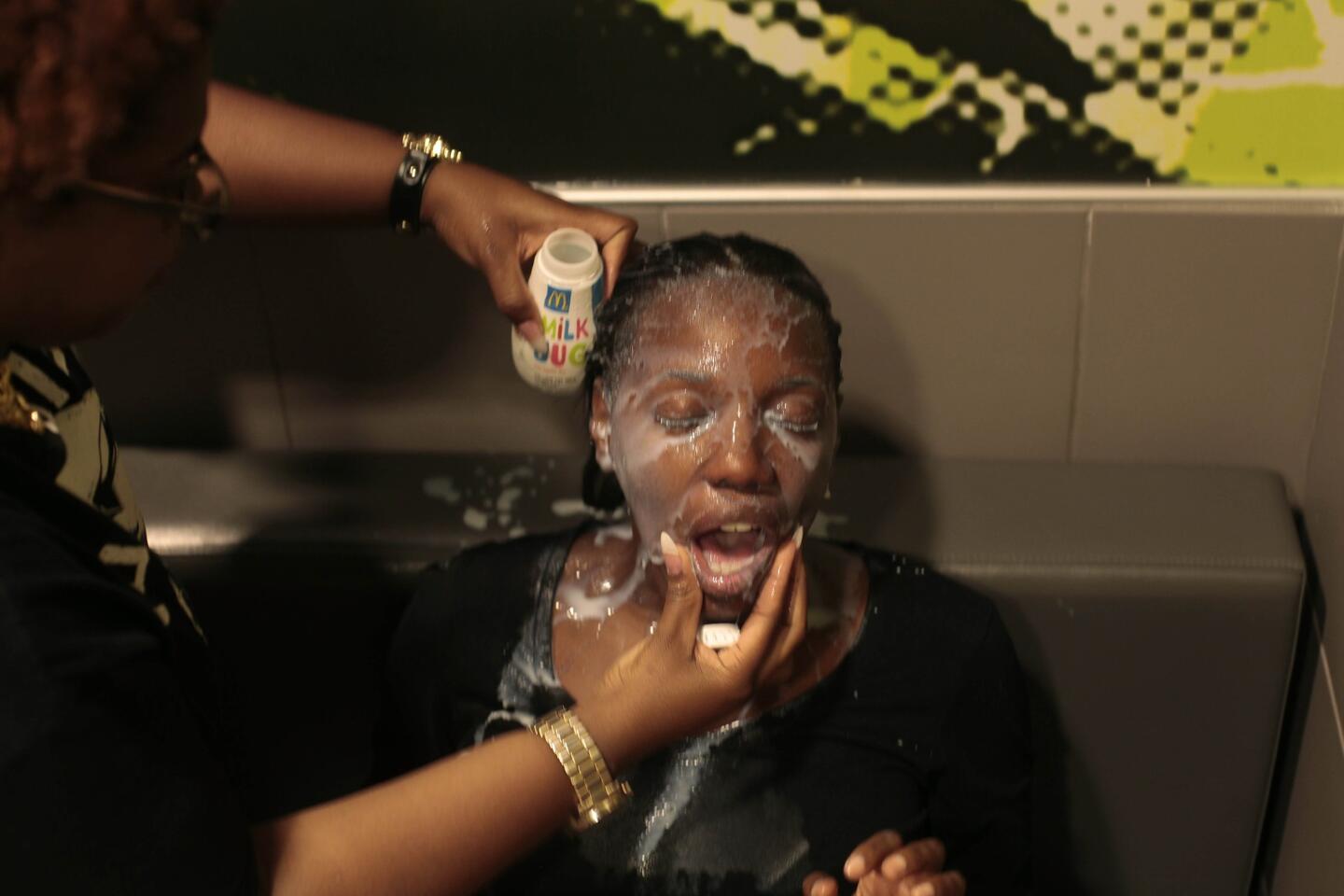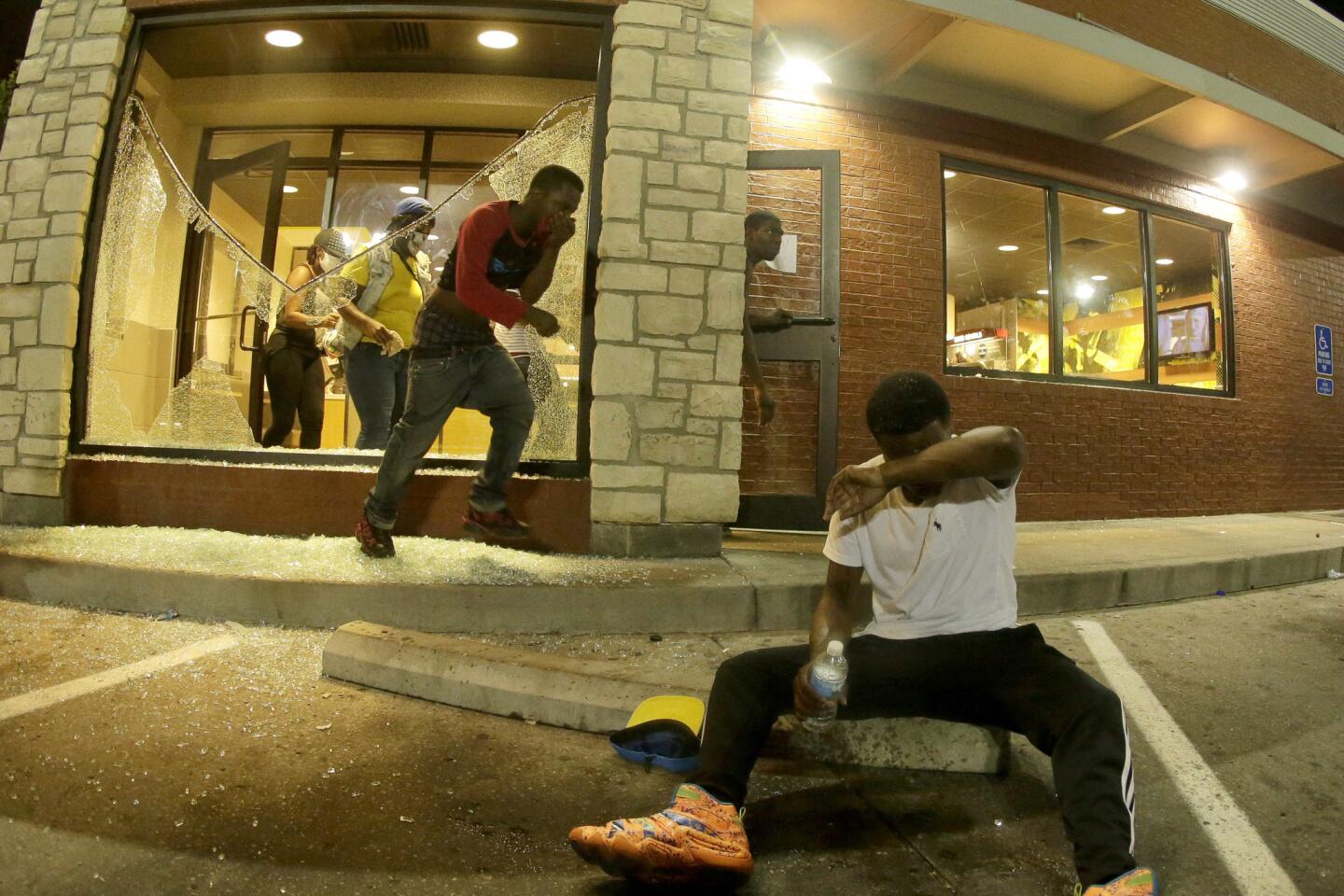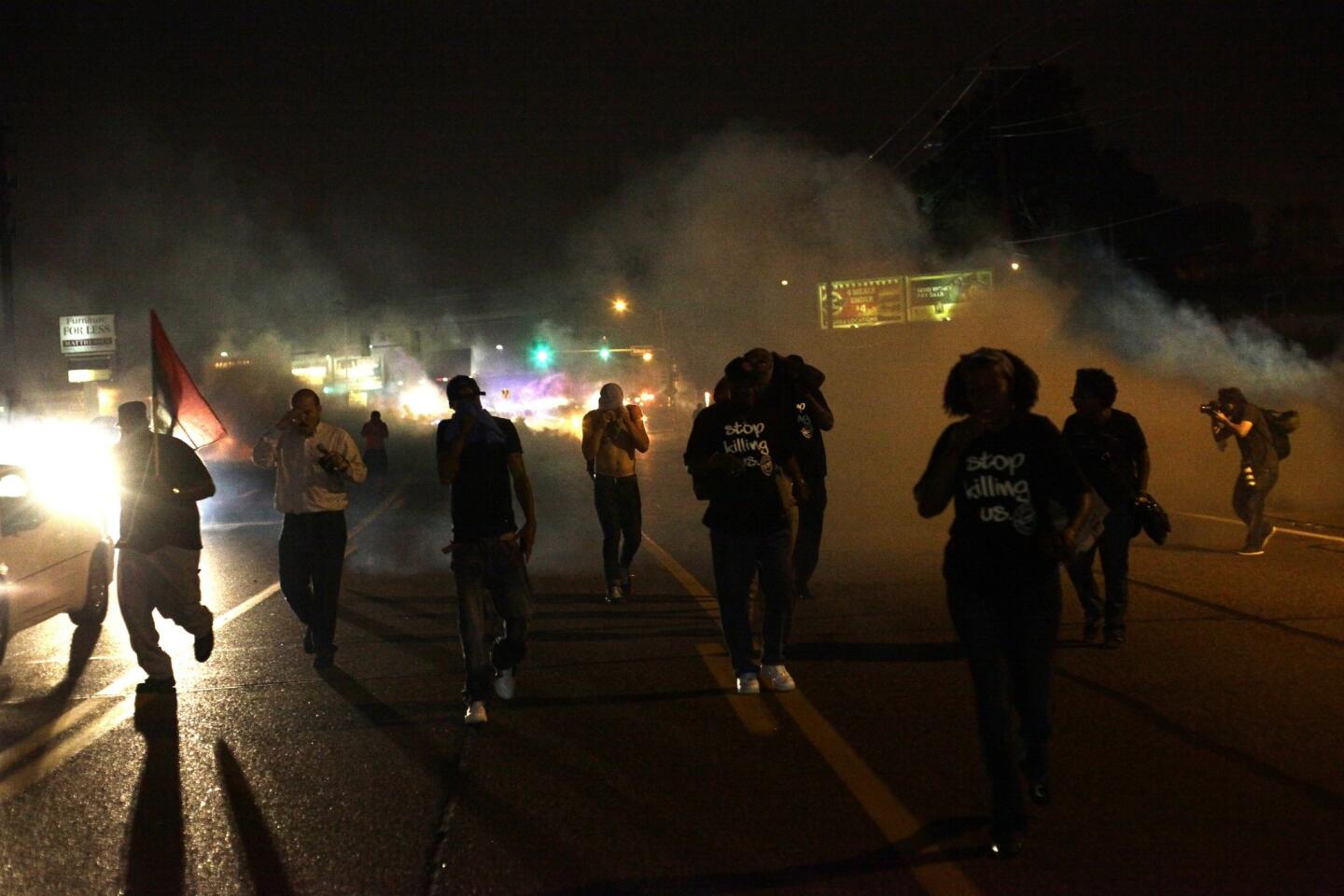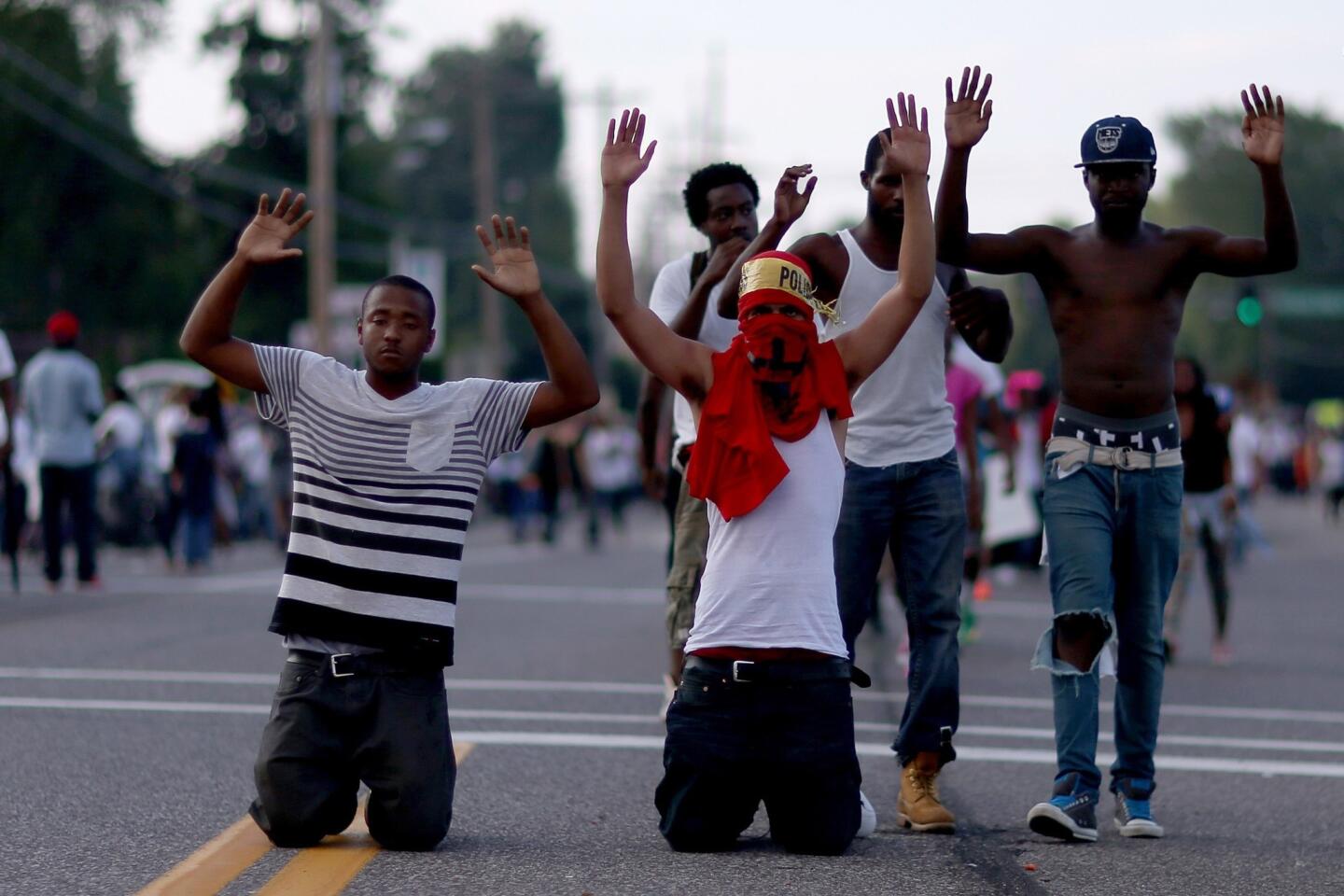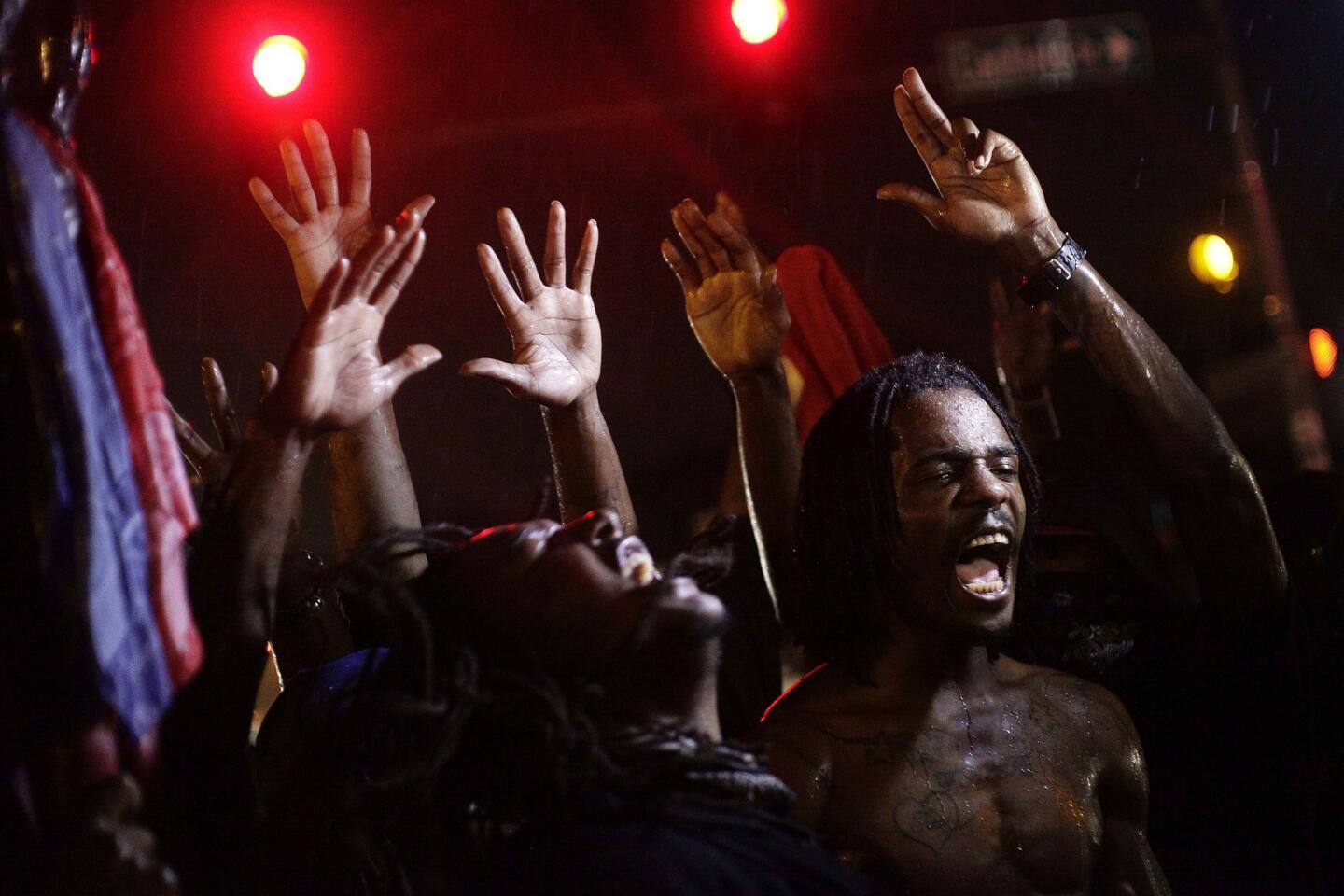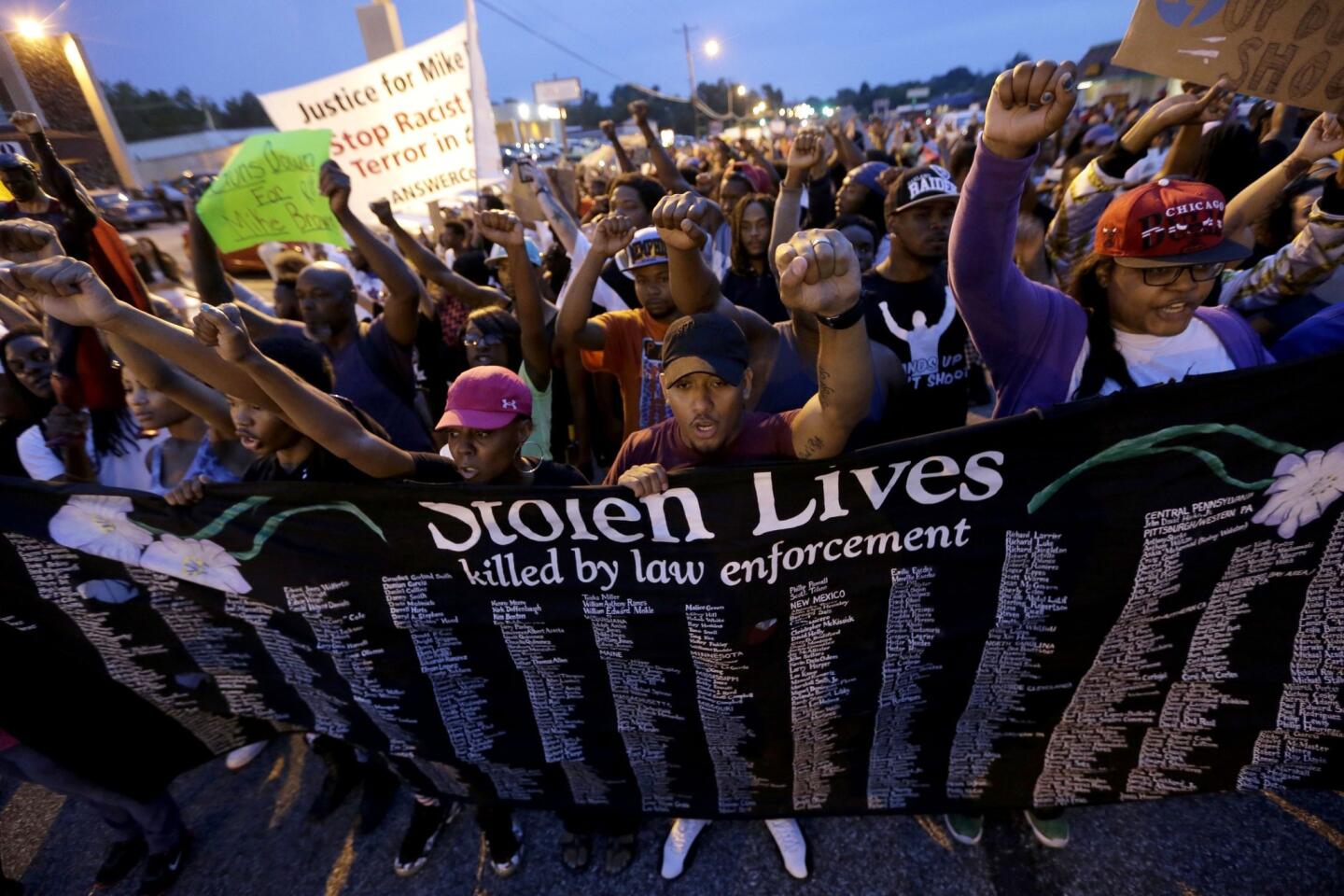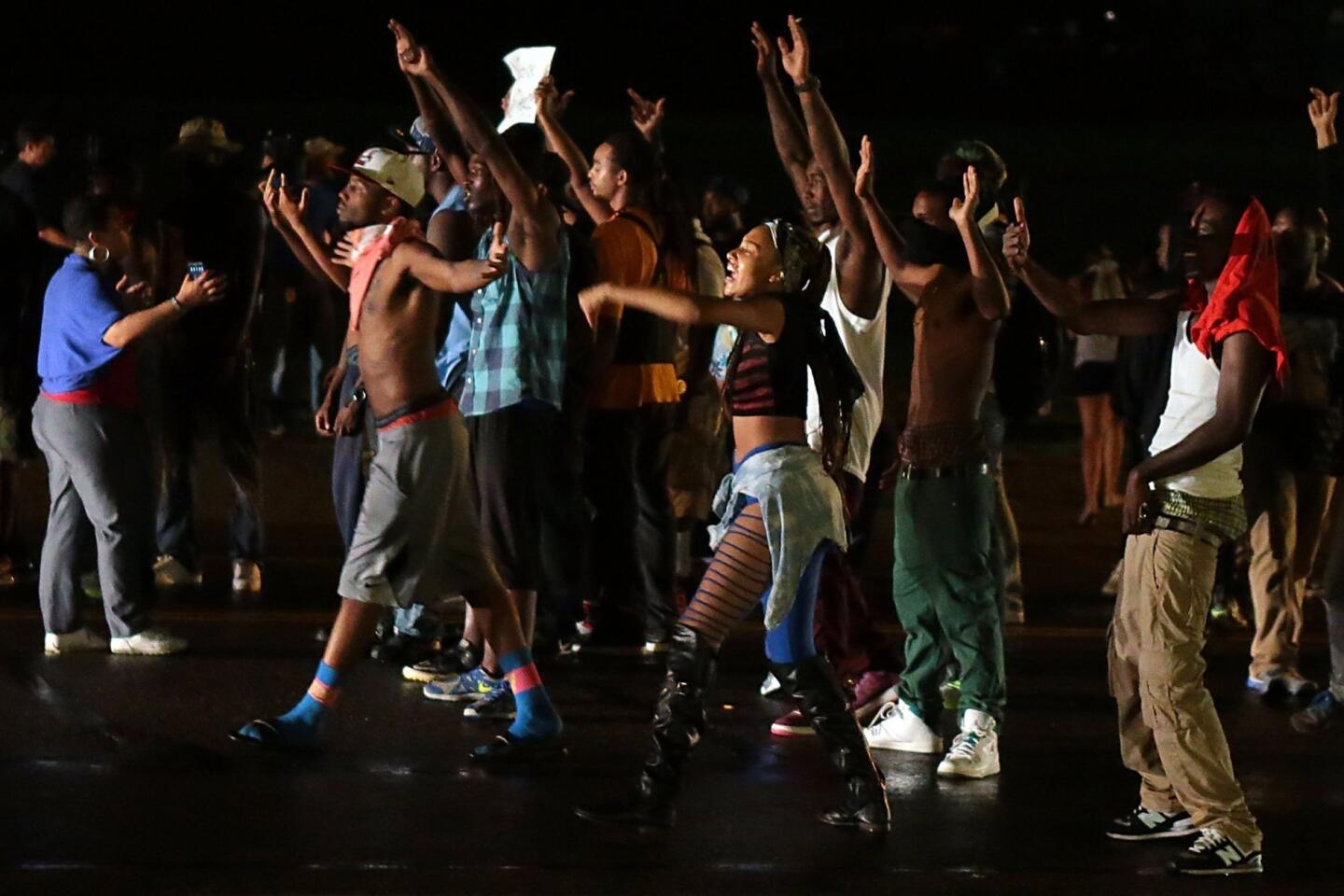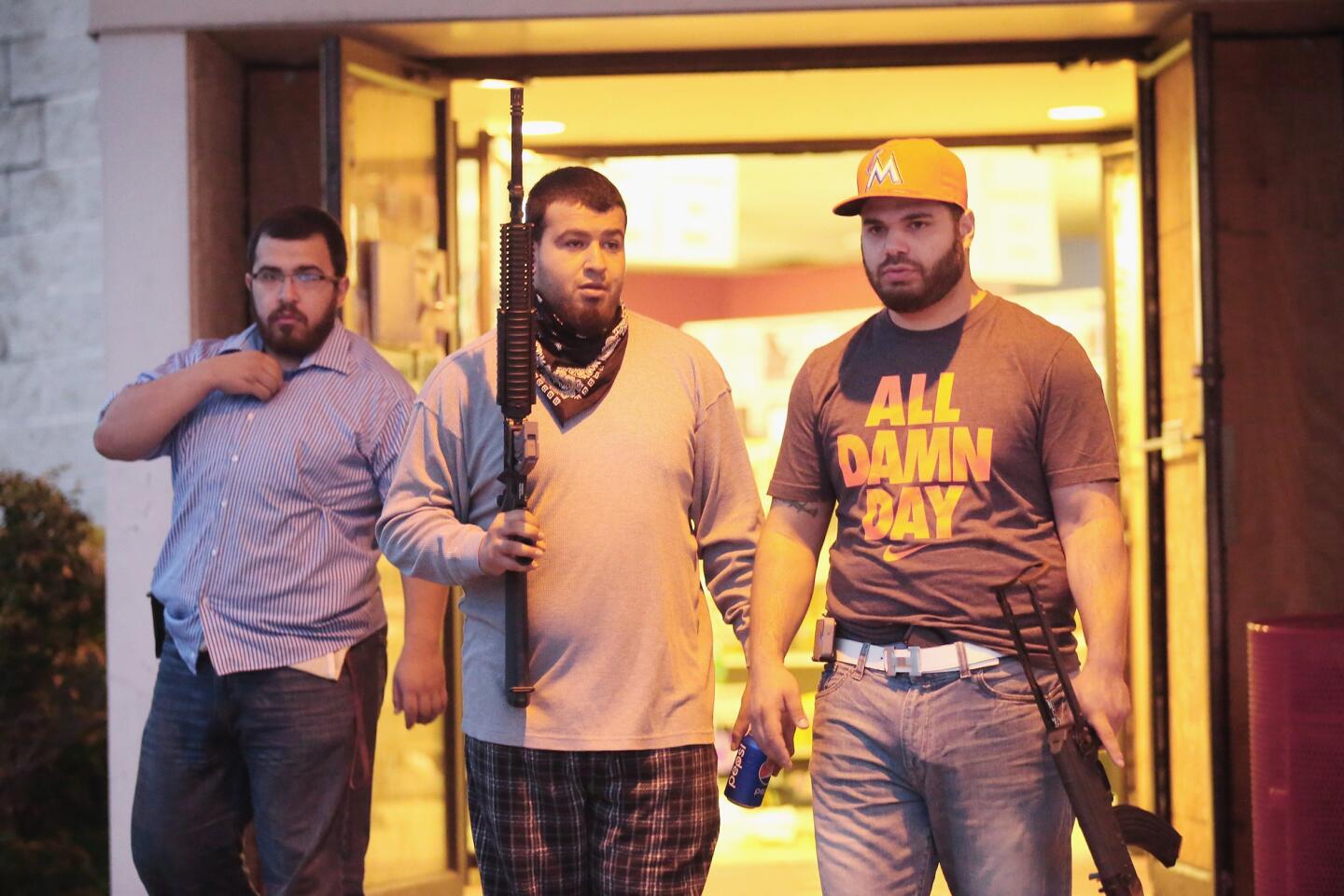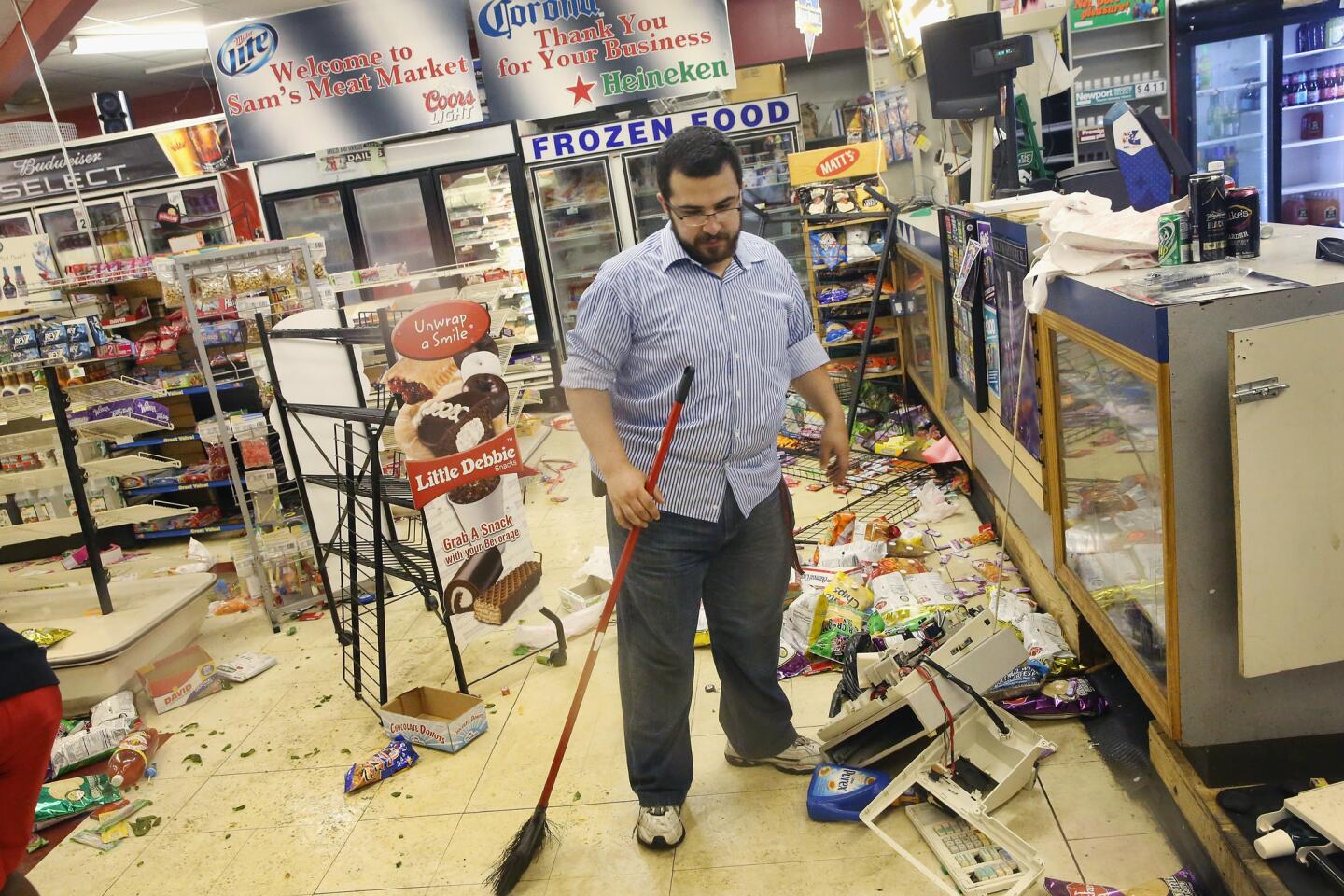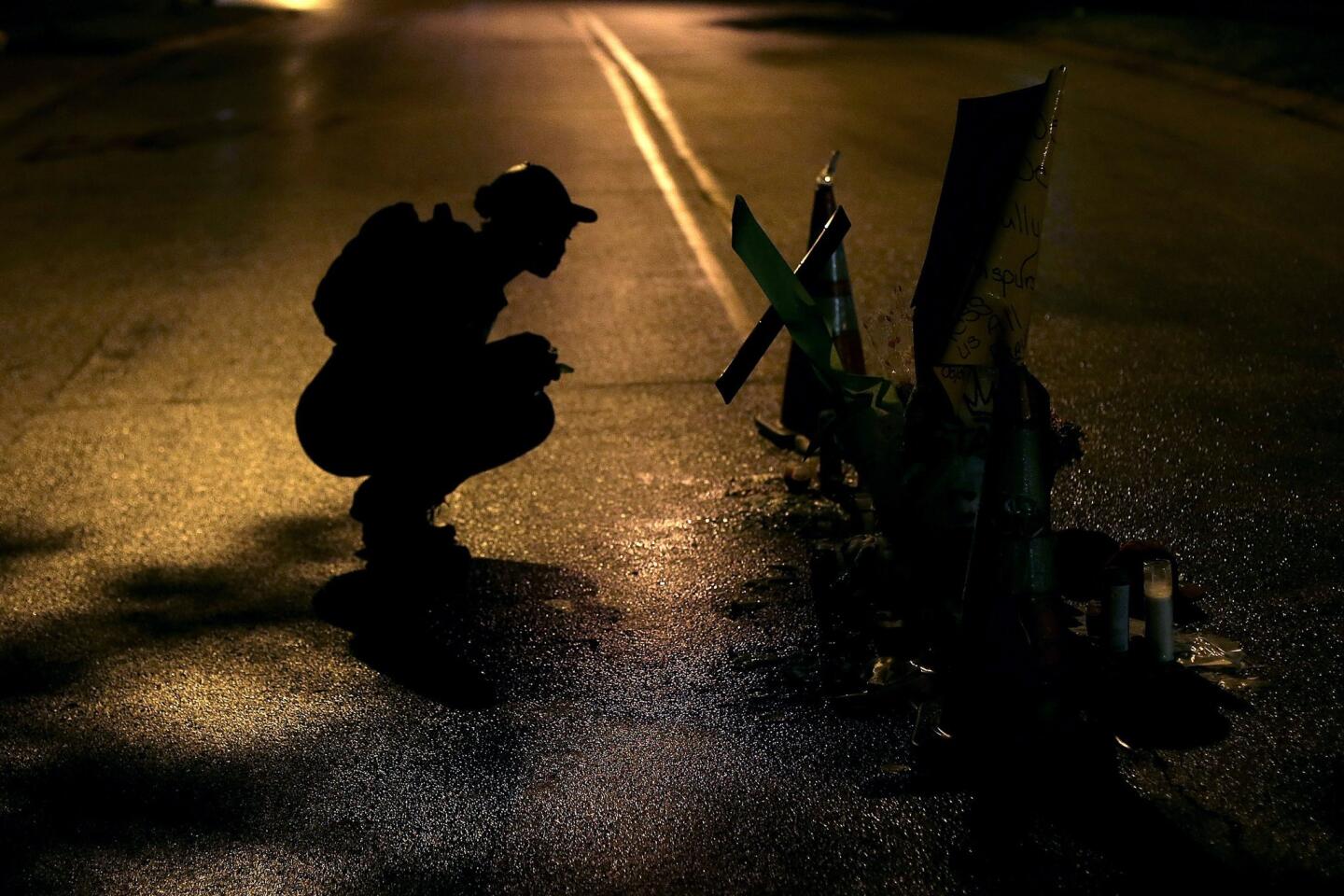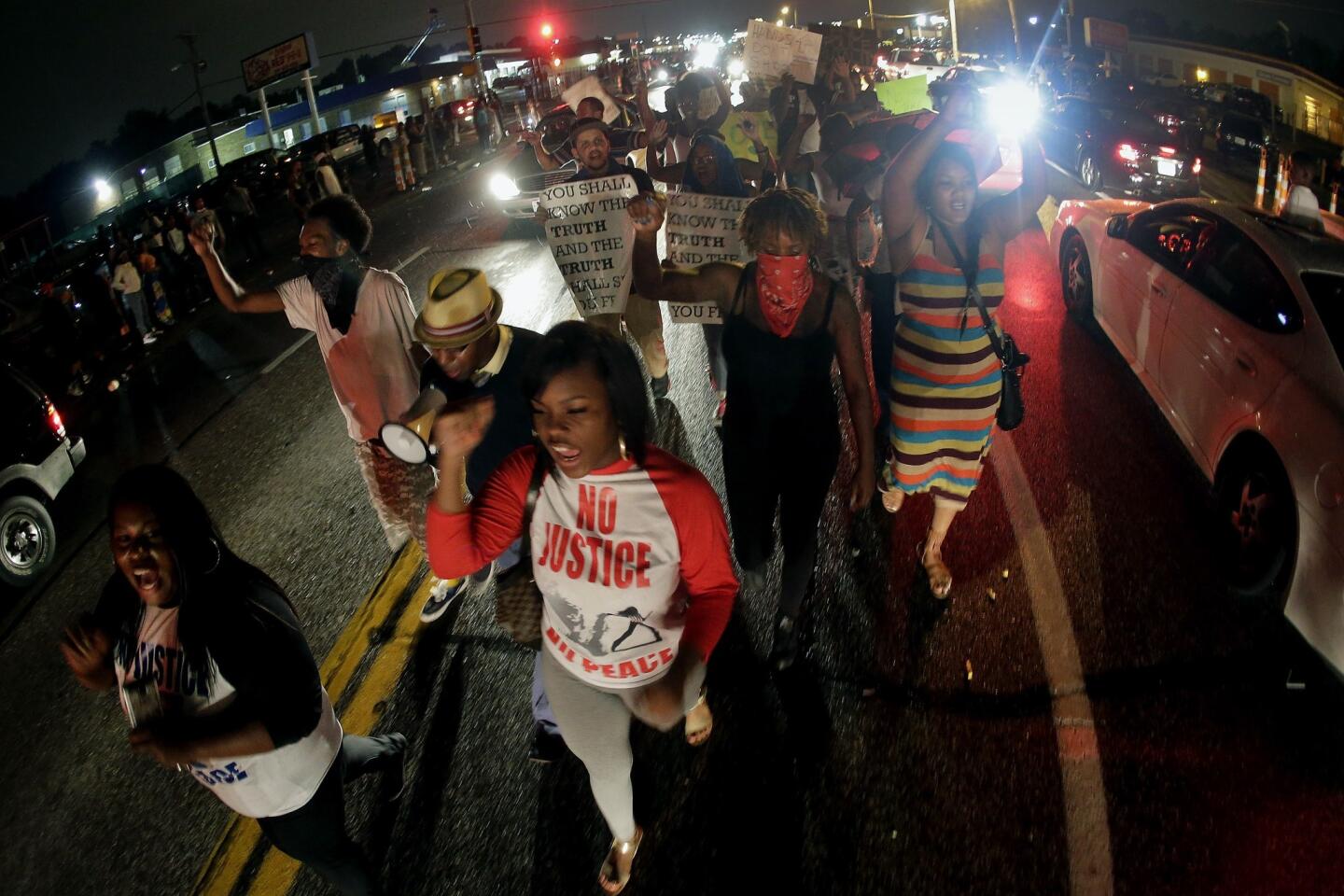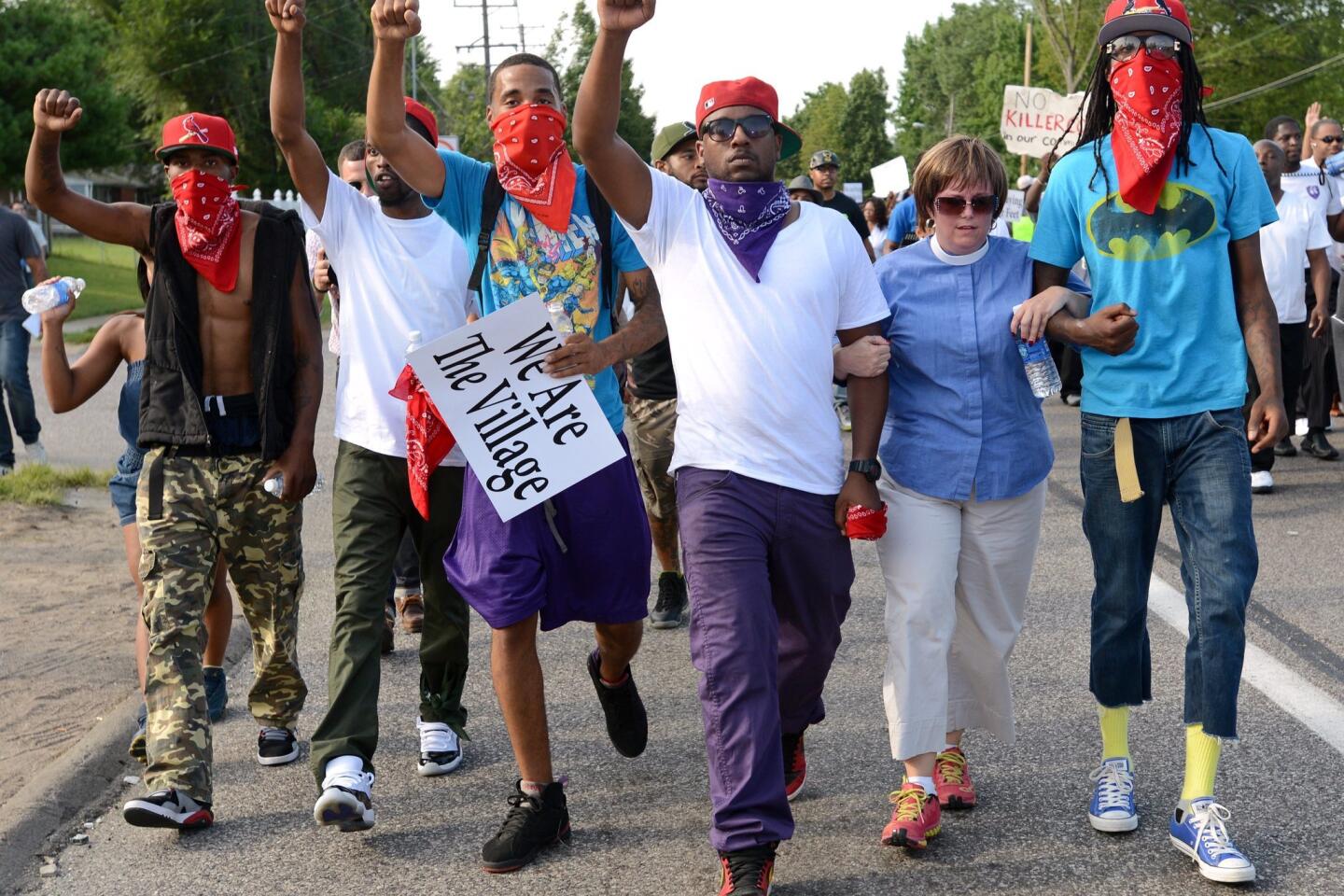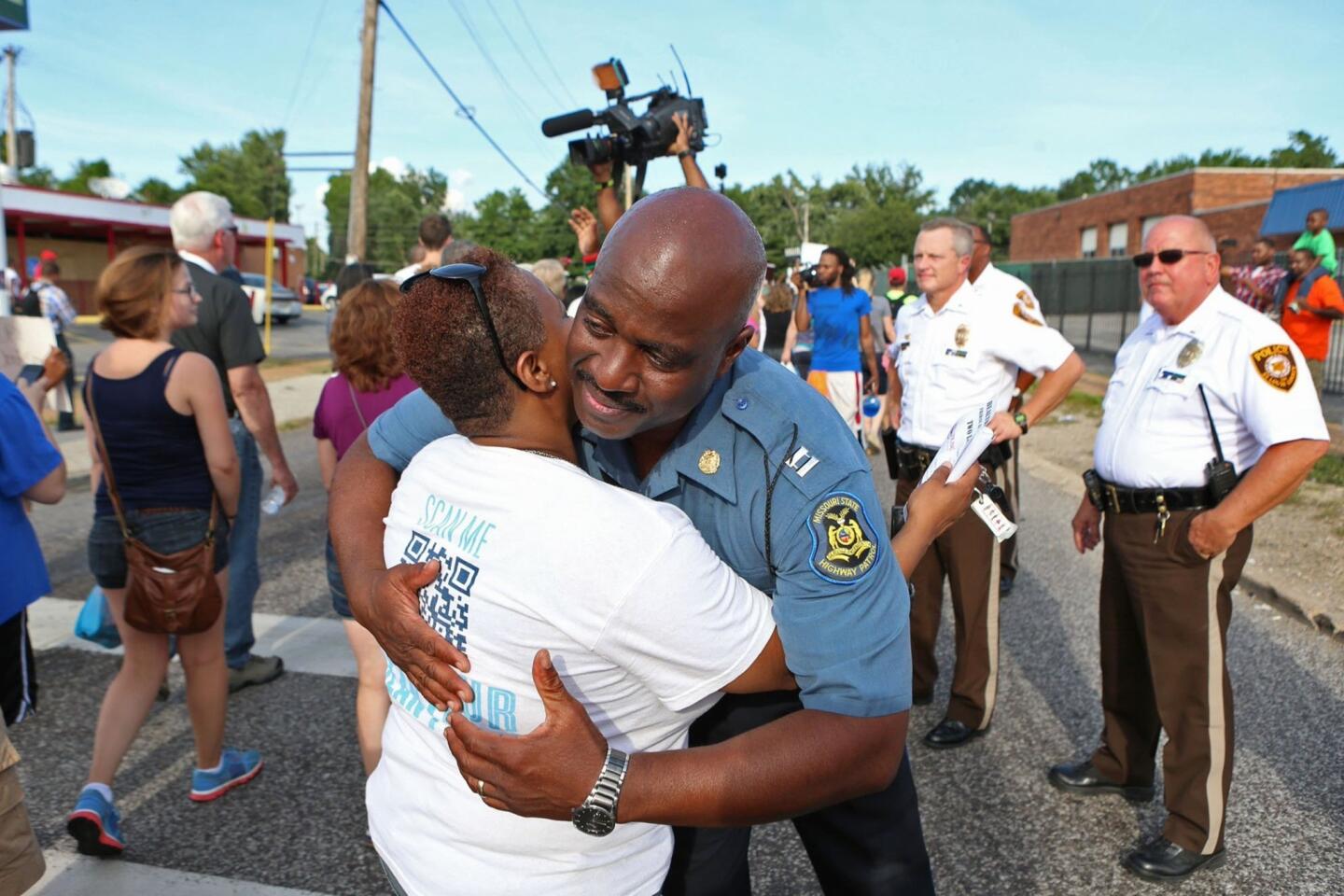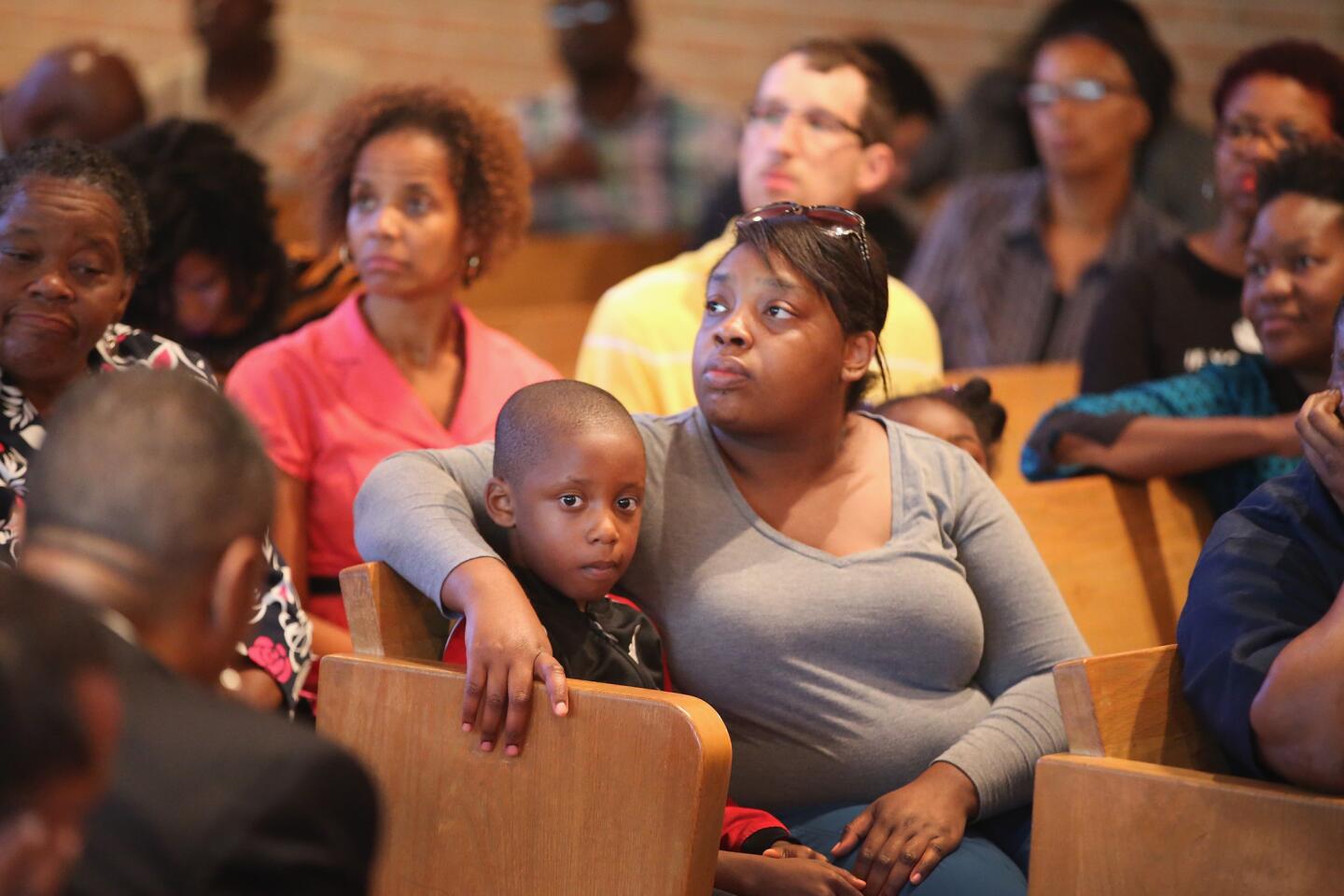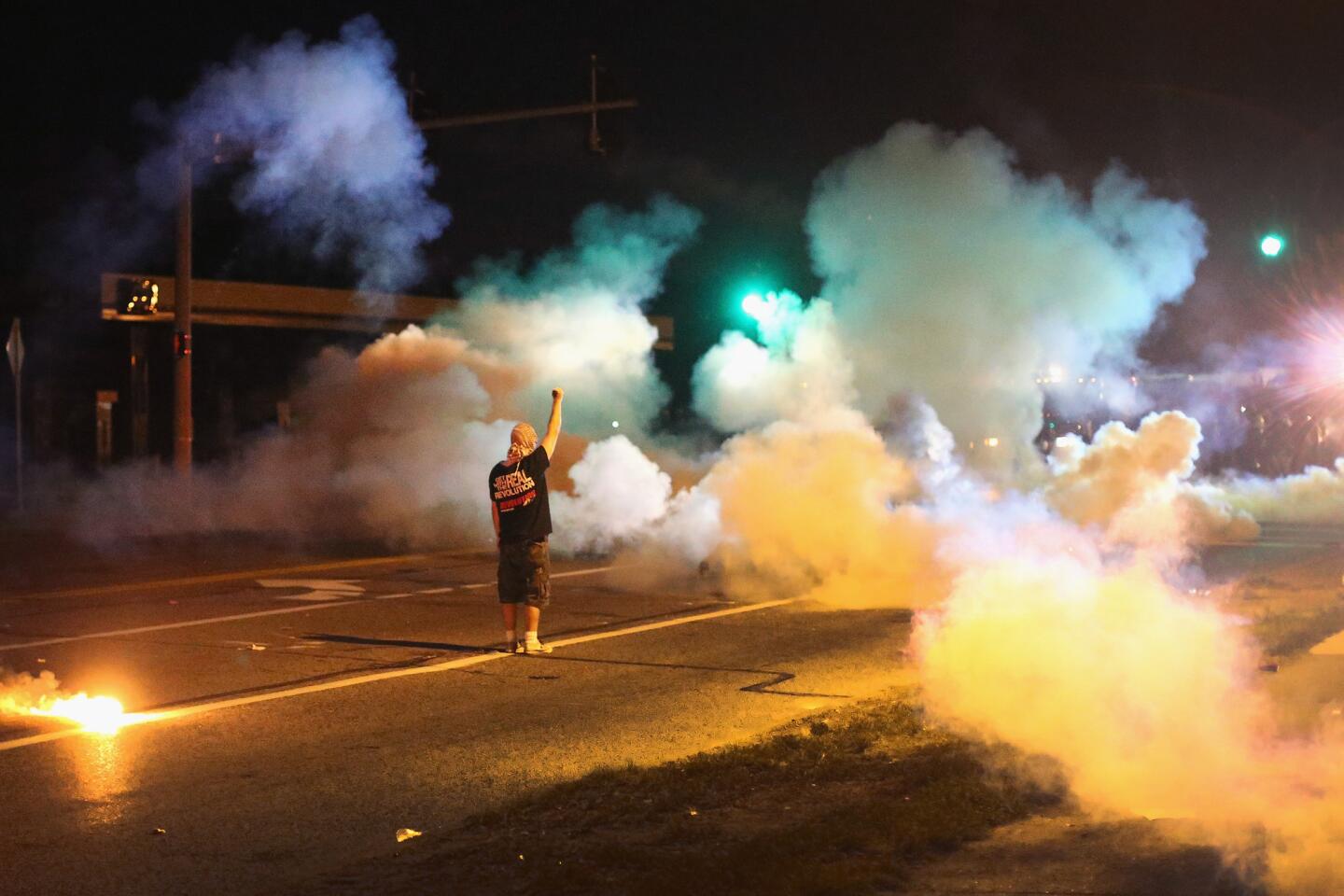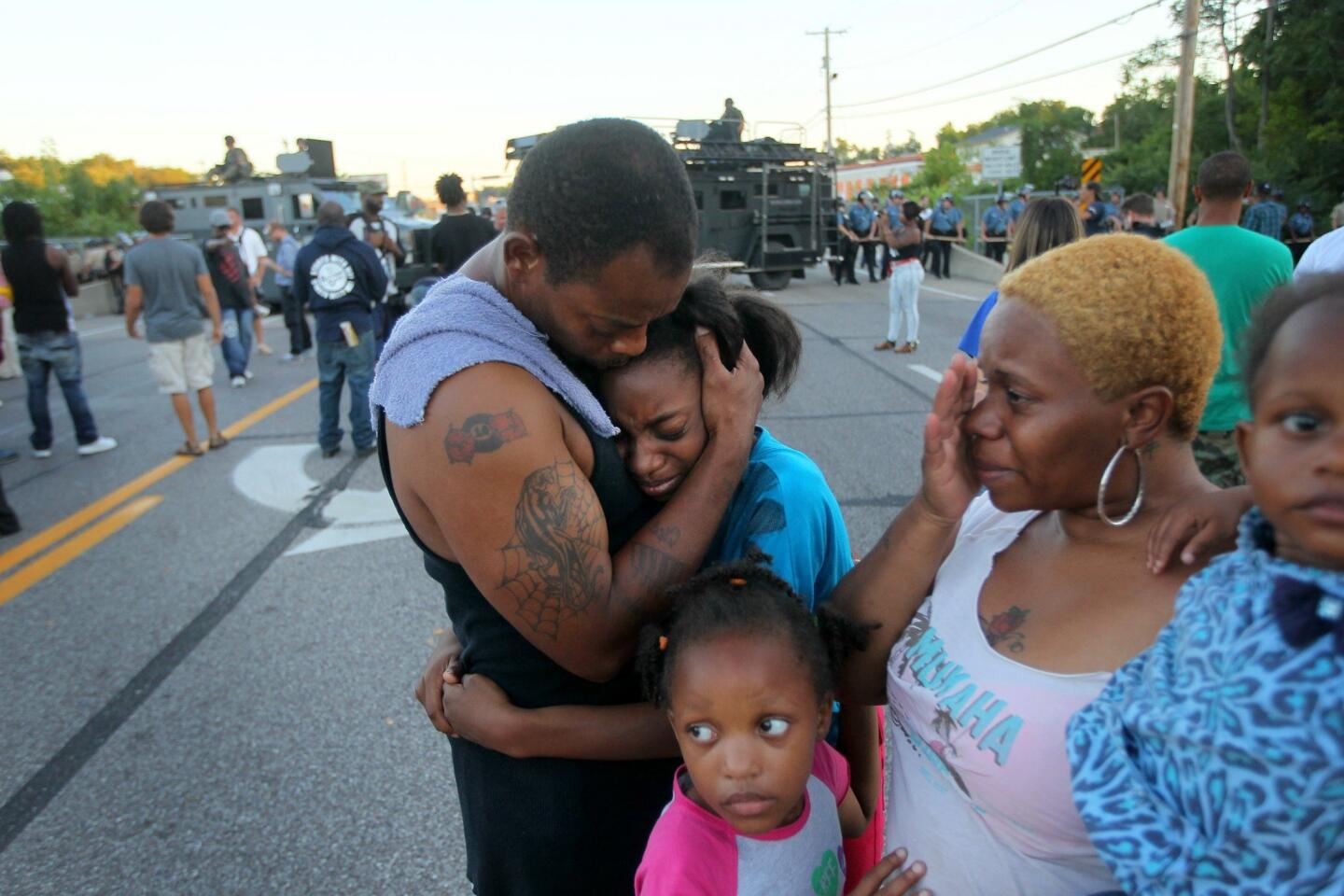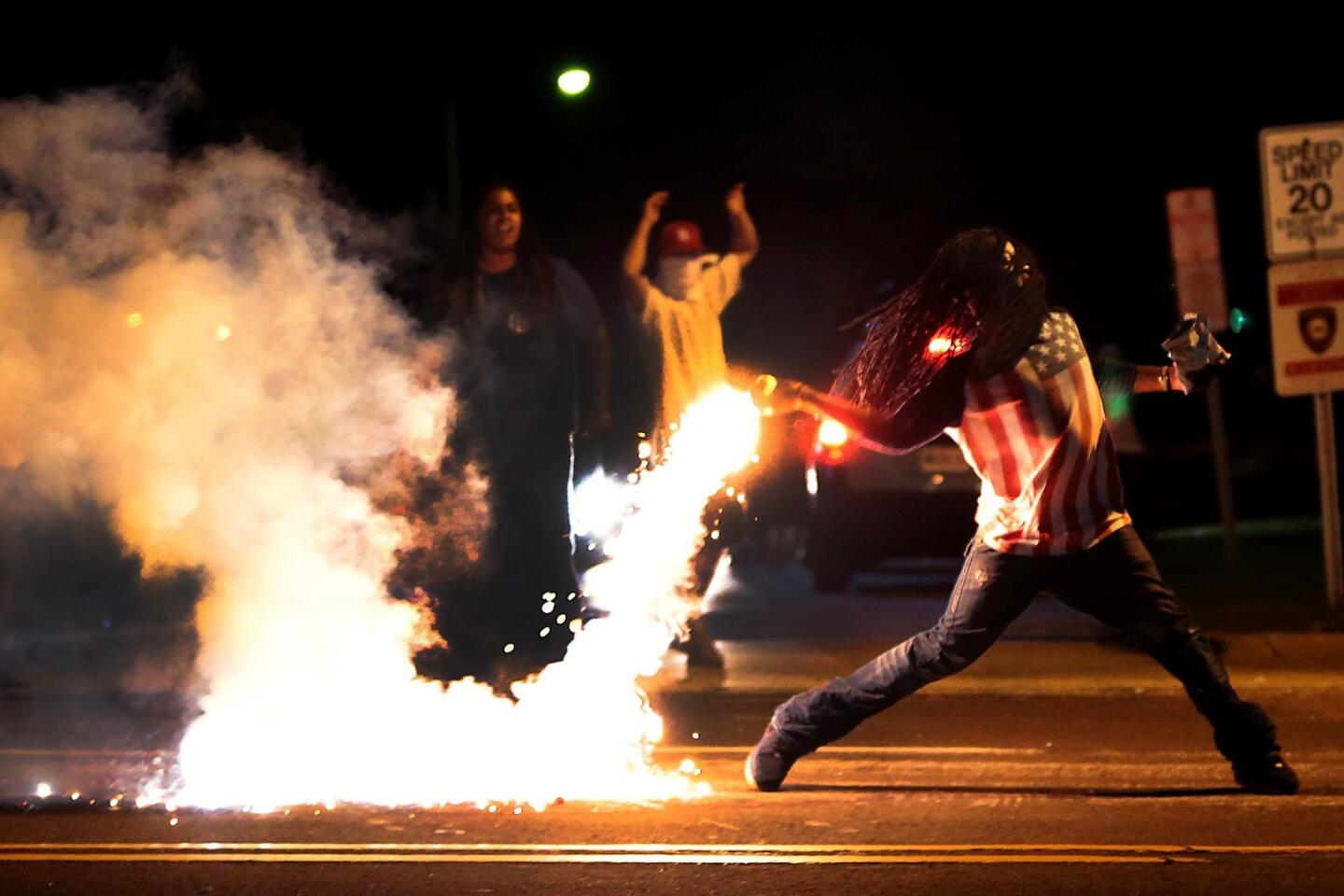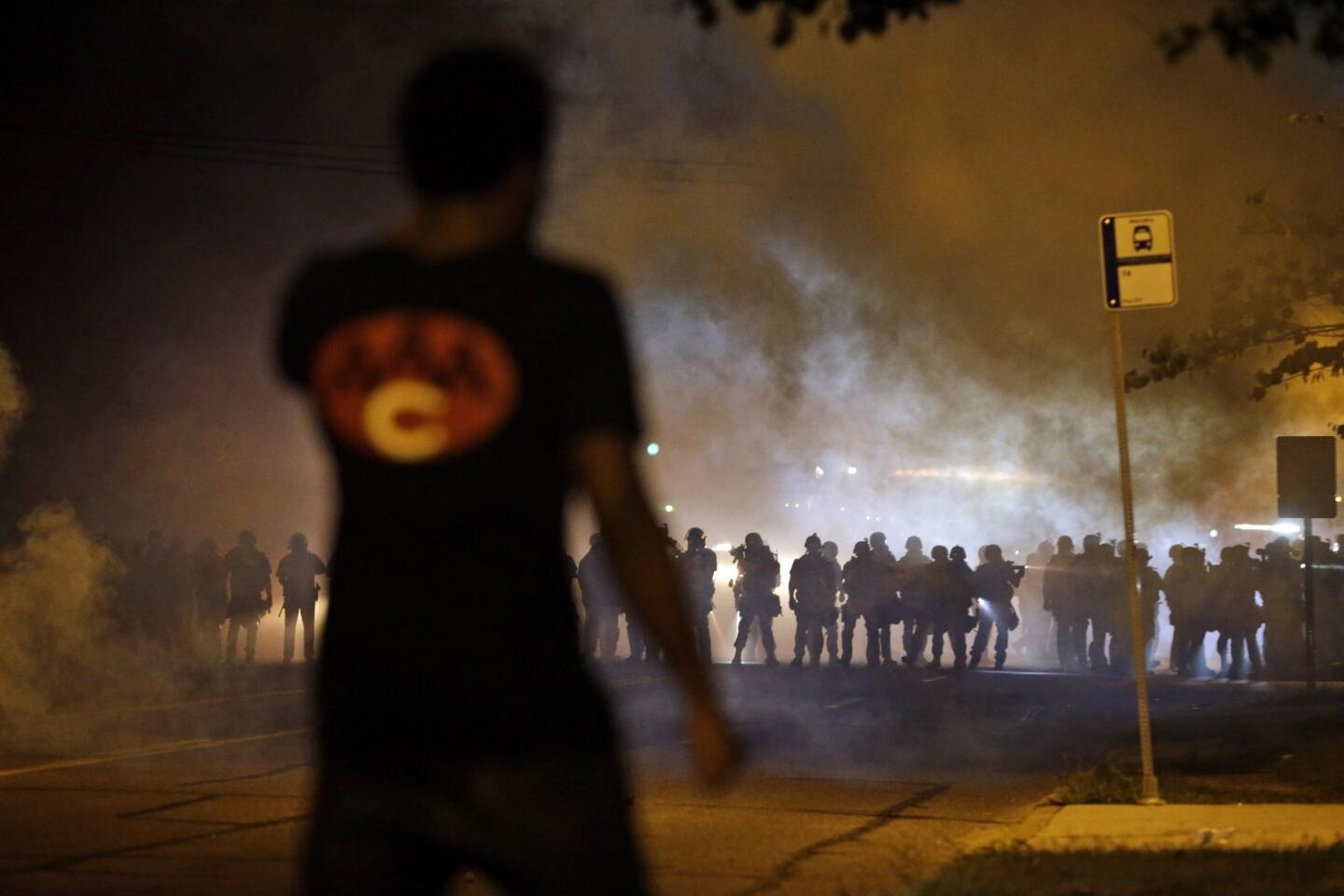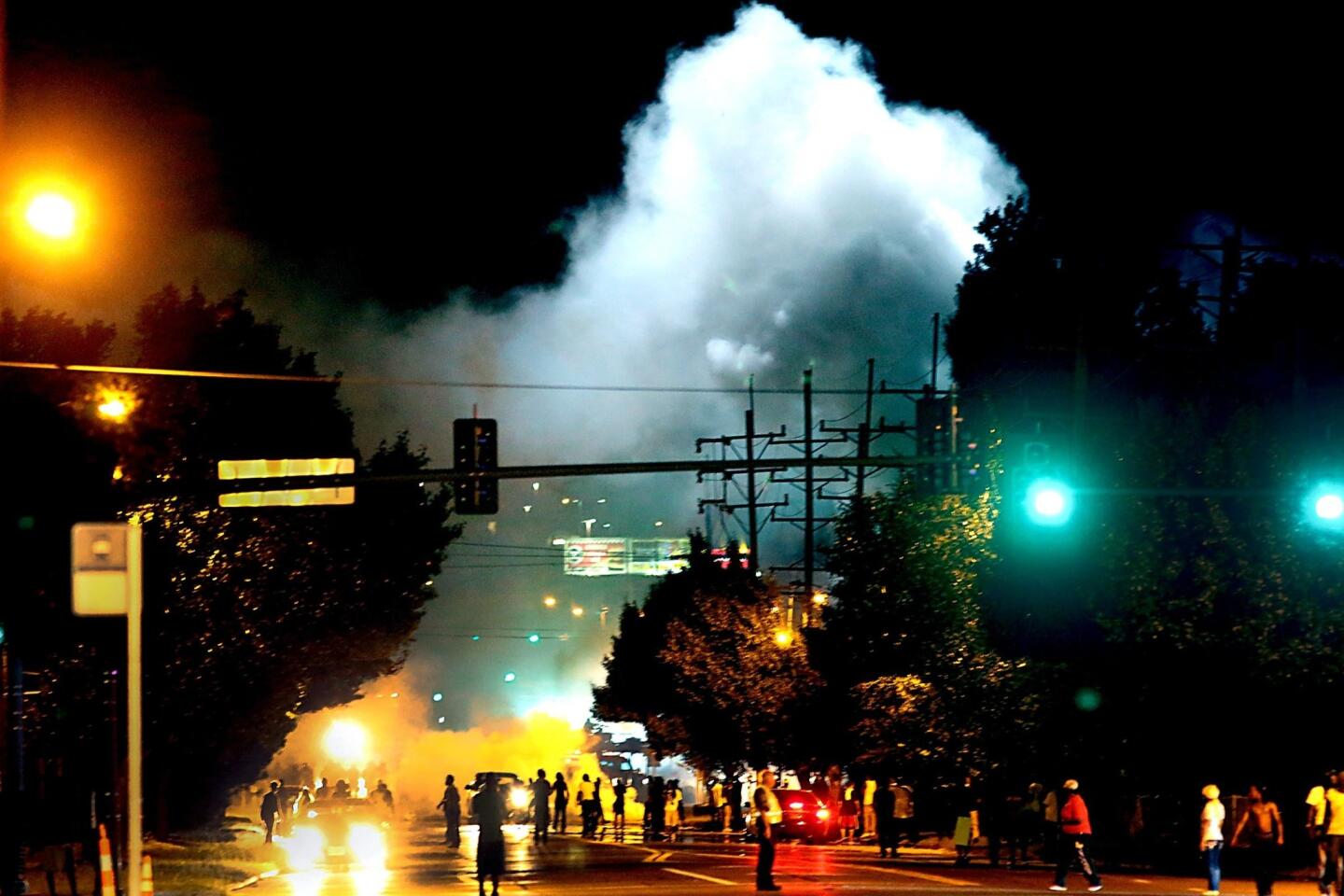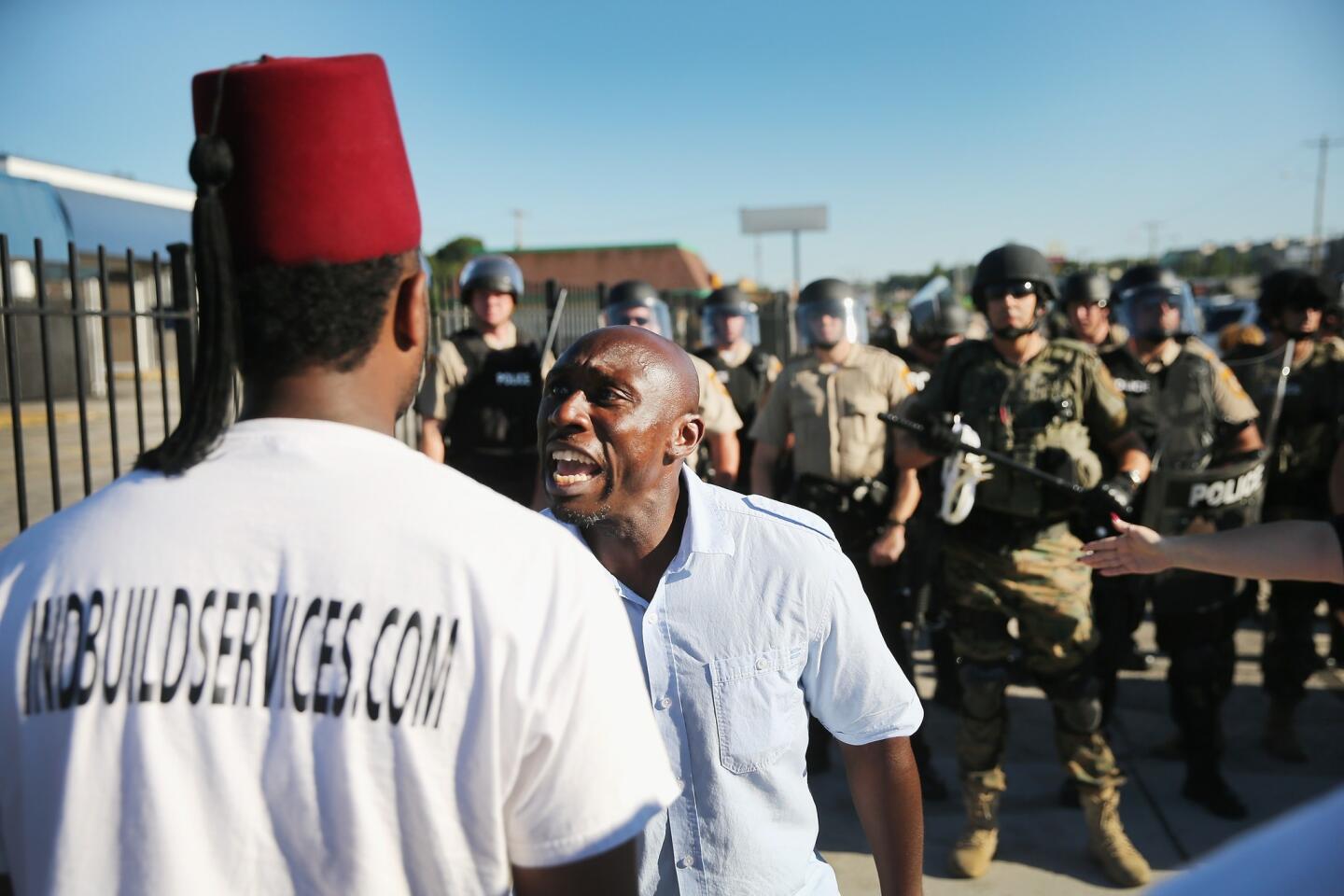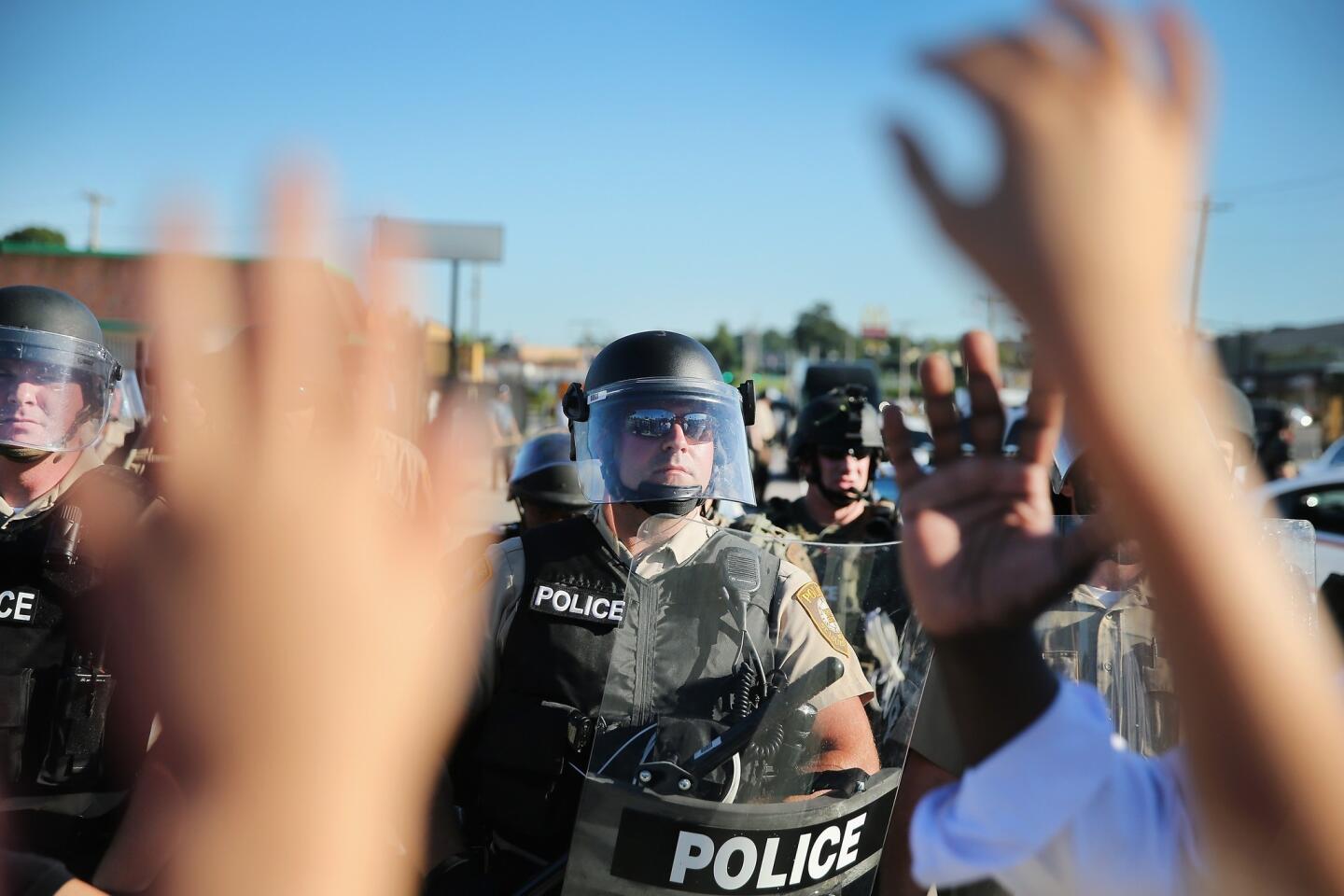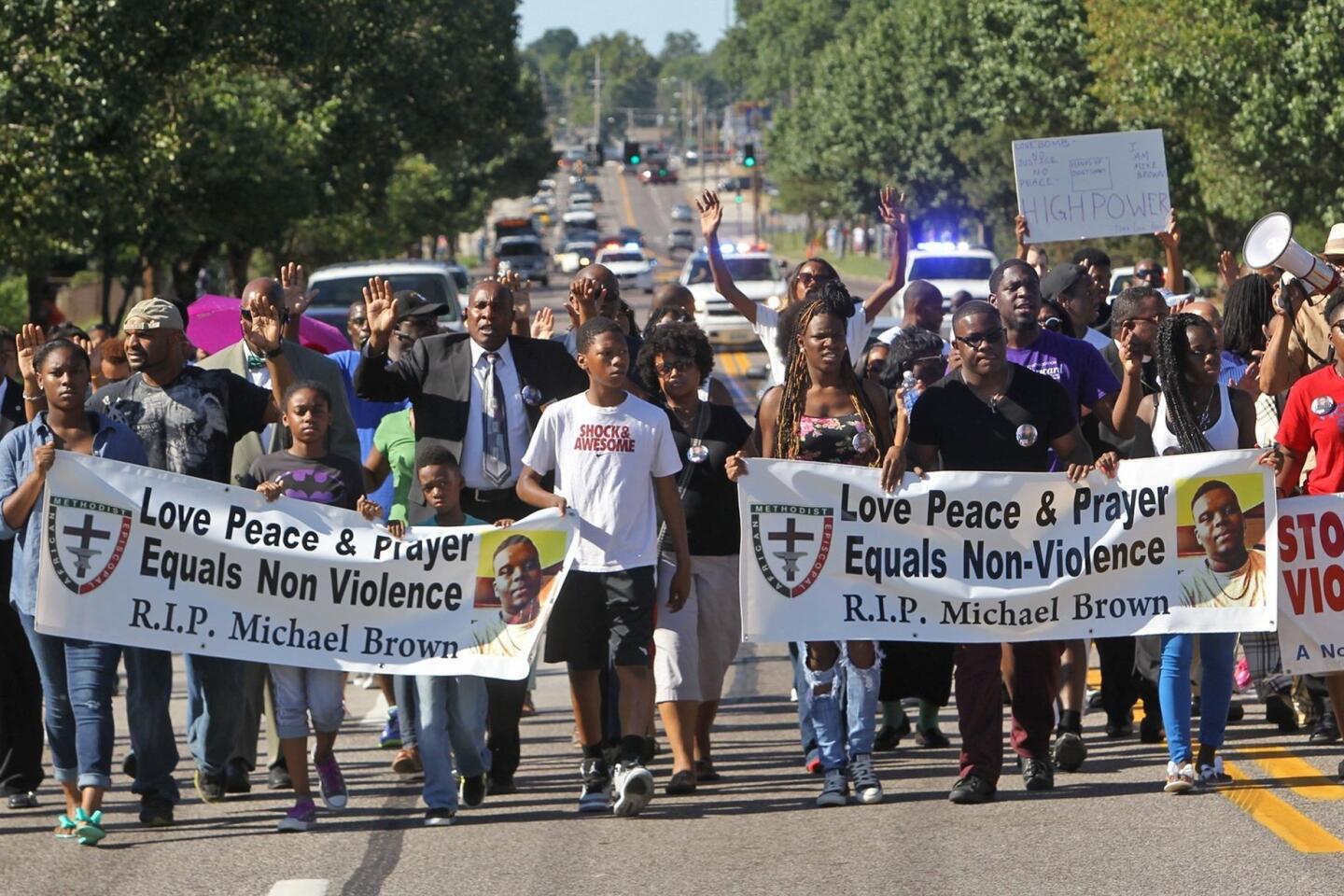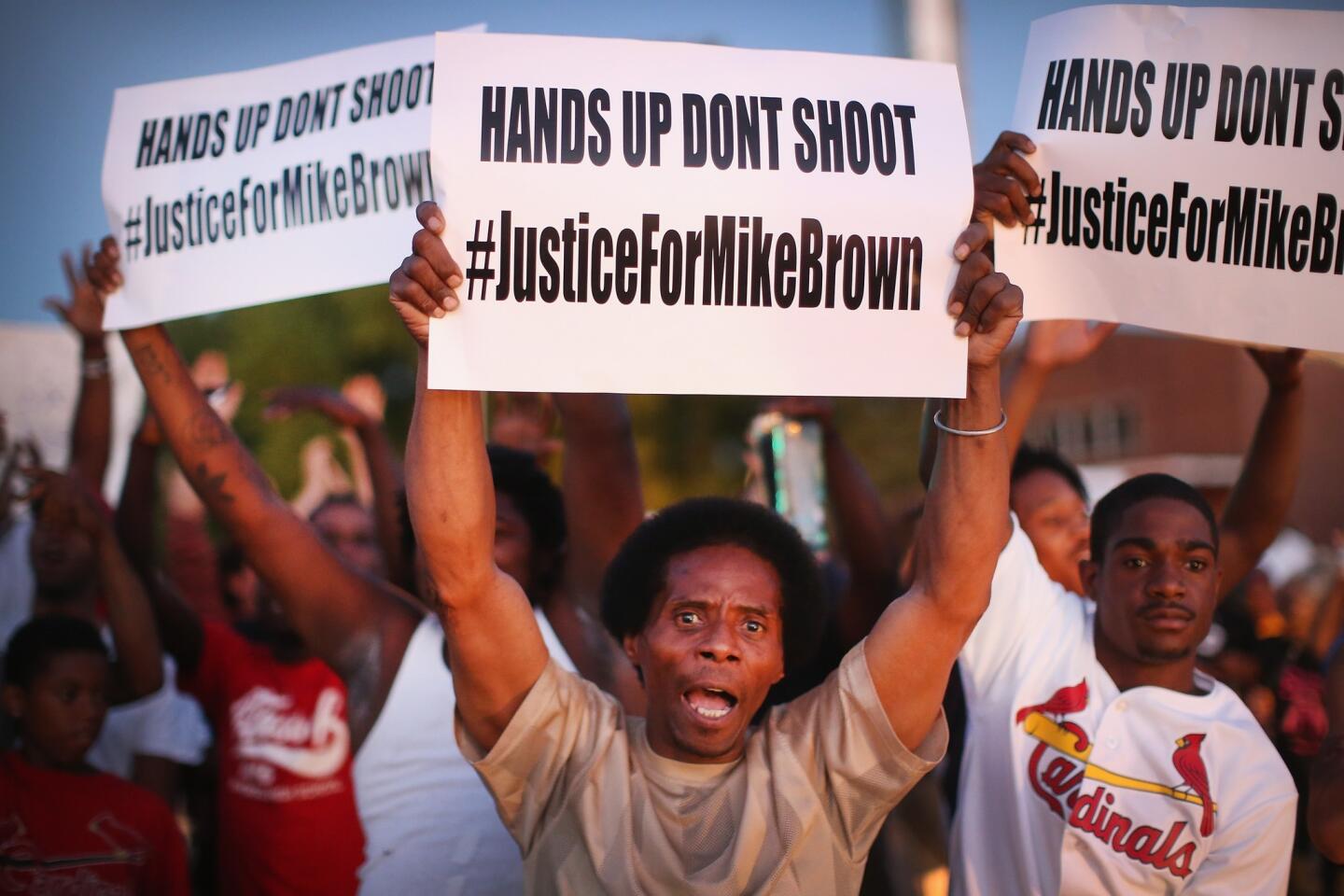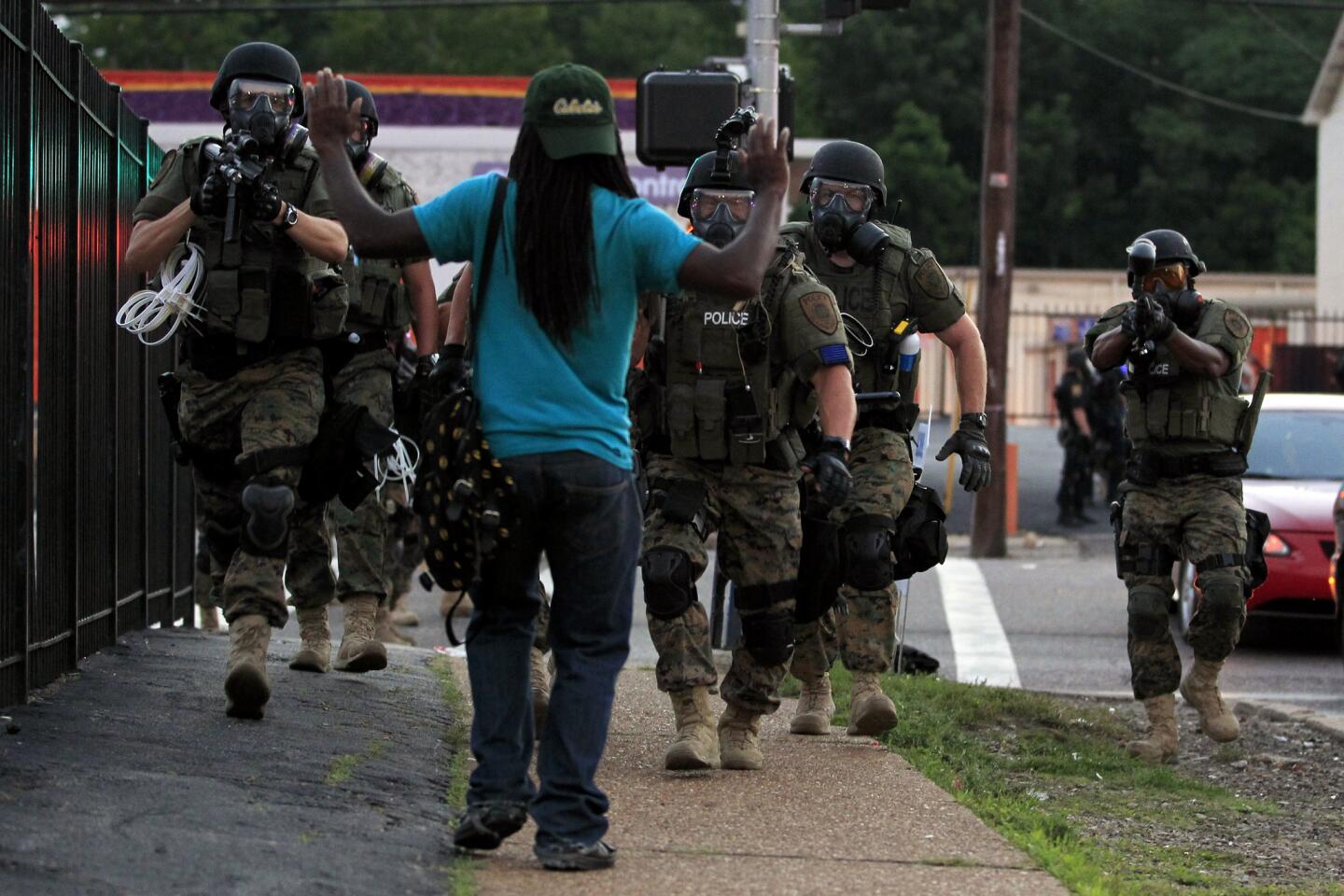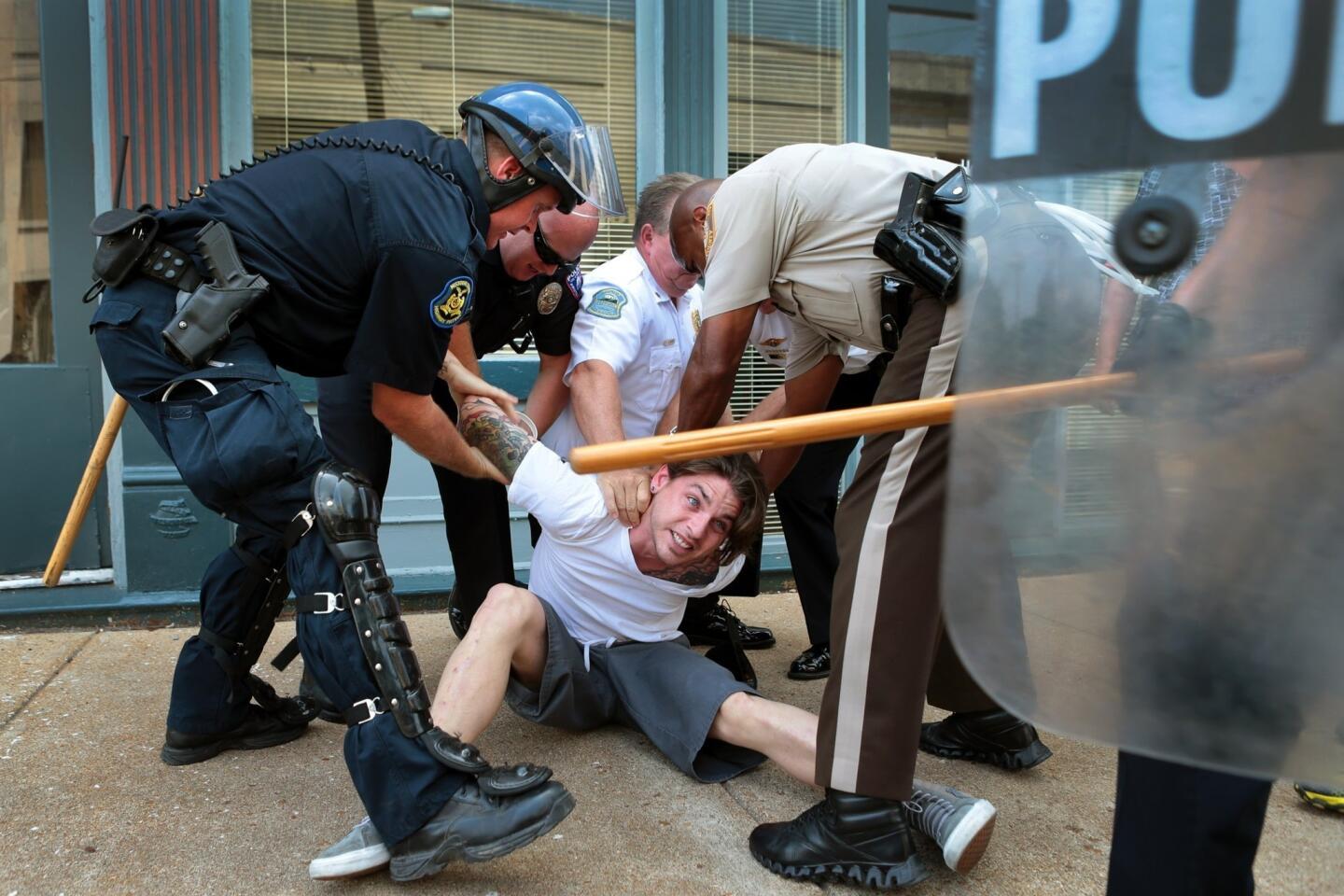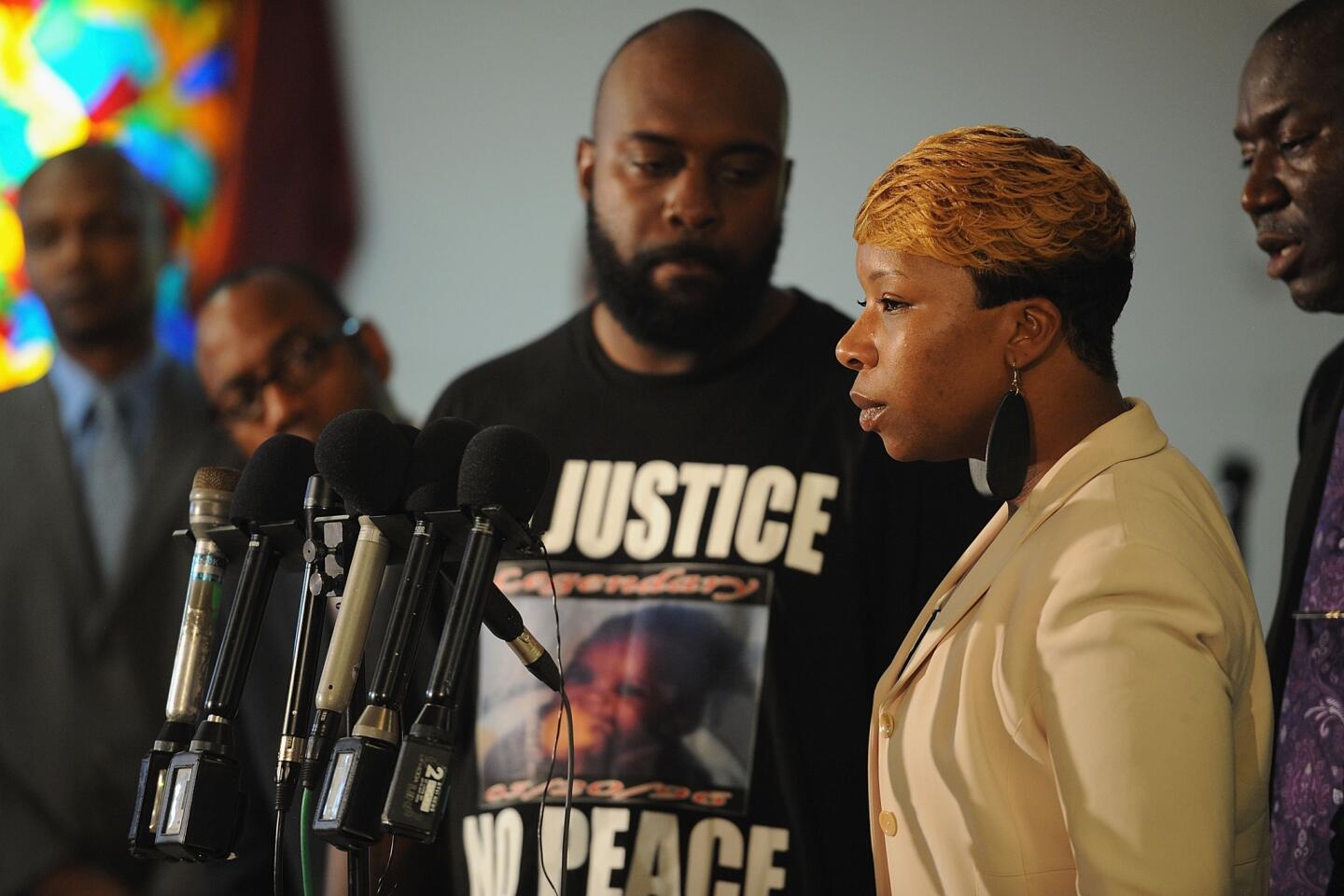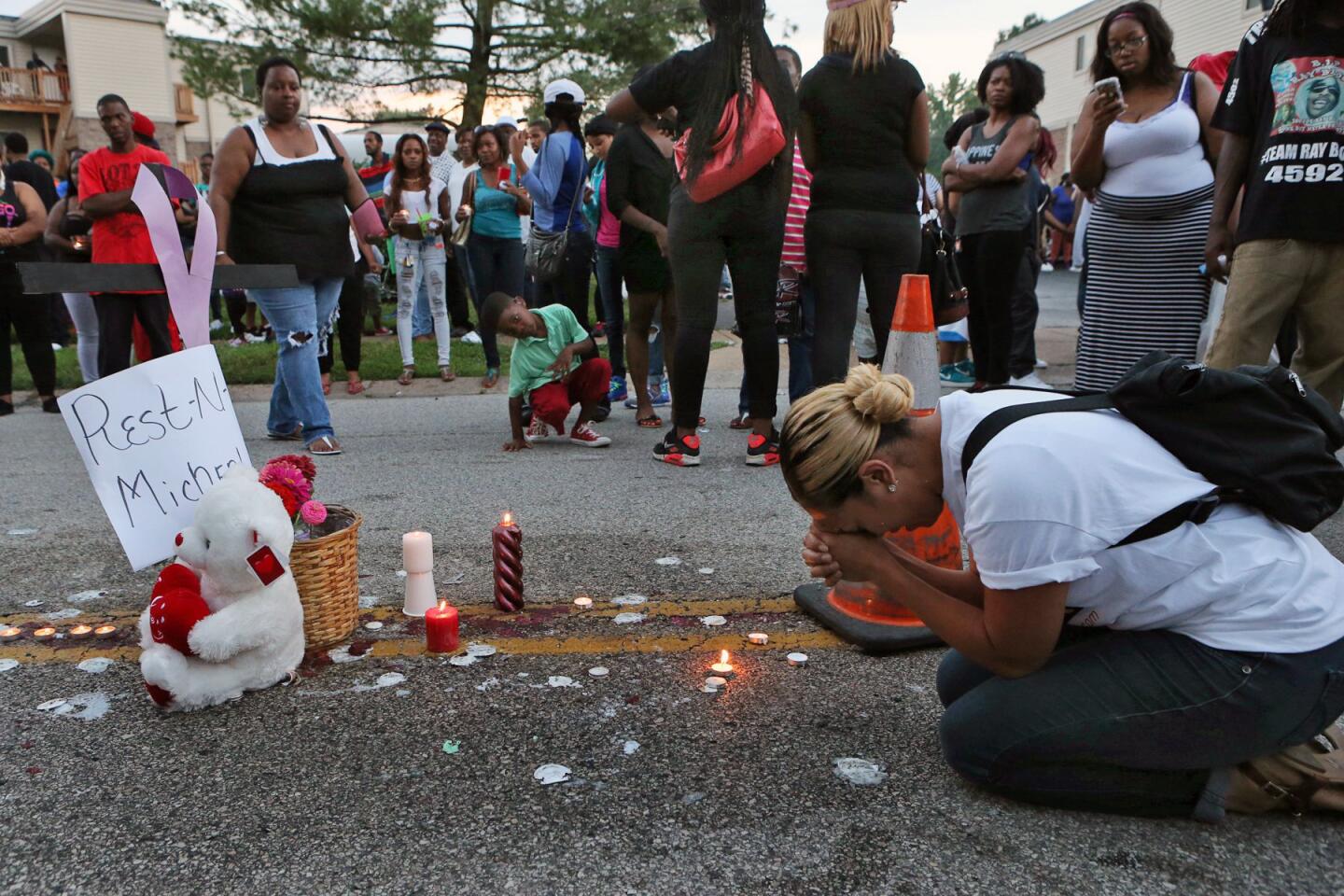Opinion: Mr. President, it’s not too late to go to Ferguson
- Share via
I remember when I first knew that Barack Obama would be elected president: I was living in Tel Aviv and I’d just watched his speech on race, “A More Perfect Union”, with a skeptical Israeli. She looked at me afterward and nodded. “He’s what your country needs,” she said.
Six years later, America’s wounds of race have been torn open in Ferguson, Mo. The first African American president, vaulted to high office largely by his oratory, has been mostly reticent. That’s understandable -- his previous forays into racial controversies as president have not gone well -- but it’s also a shame. There is no one better suited to address the demonstrators, their supporters, and their critics than President Obama.
I understand the argument that President Obama is too polarizing to be helpful in Ferguson. I myself have argued that Obama could take a stand against punching puppies and many of his opponents would respond that puppy-punching was their American birthright.
But on issues at the heart of Ferguson, Obama has notable conservative allies. Rand Paul and his fellow libertarians have been admirably outspoken against police militarization, and Paul has teamed up with Cory Booker on legislation to reform America’s wildly discriminatory drug laws and criminal justice system. By aligning himself with Paul and the libertarians on criminal justice, Obama can isolate the dead-enders and open up enough political space to address the other serious underlying issues in Ferguson.
Indeed, many white Americans aren’t malicious or ill-willed toward demonstrators in Ferguson and elsewhere; they just have no idea why it’s all happening because they live in self-segregated social circles. They need someone to break through the cable-TV and social-media noise to explain how poverty and violence in communities like Ferguson are not shaped by antiquity but by recent history and current policy. They need someone to tell them why many African Americans feel that their society values their lives less -- and be resolute in demanding that nobody’s life be cheap, ever.
Obama can also constructively address the demonstrators and their allies, exploring how to constructively talk about Ferguson with people of different backgrounds, urging them to channel their passion into the political process and confronting how urban gun violence has become an epidemic.
The one issue the president does not need to directly address in any depth is the specific case of Michael Brown. As Obama rightly noted, it is not helpful for him to tip the scales in an ongoing investigation. Instead, the Brown family and the Ferguson community can be better served by Obama’s Justice Department seeking to make sure that the investigation is thorough and fair -- as the department is doing now.
But the Ferguson demonstrations mostly haven’t been about Brown himself; they’re about the systems and circumstances that make cases like Brown’s too common. Those issues are too complex to boil down to a quick sound bite -- which is probably part of the reason why Obama’s relatively brief comments on Trayvon Martin and Henry Lewis Gates fell flat -- but are not too complicated for a half-hour speech on YouTube.
And no, a Ferguson address wouldn’t win over Obama’s most virulent foes, but he could reach the average, apolitical people who have heard about Ferguson on Facebook. At the very least, it’s unlikely that he would worsen the situation, and if he can give voice to all parties like he did in Philadelphia in 2008 or in Tucson in 2011, he might very well improve it.
In short: Mr. President, as the dust settles on Ferguson, your country needs the man we elected. Will you answer the call?
Joel Silberman is a Los Angeles-based writer and the producer of such viral Web videos as “Legitimate Rape” Pharmaceutical Ad (TW) and Kids Do The News. Follow him on Twitter @Wordpeggio.
Follow the Opinion section on Twitter @latimesopinion
More to Read
A cure for the common opinion
Get thought-provoking perspectives with our weekly newsletter.
You may occasionally receive promotional content from the Los Angeles Times.
